"Neurodiversity through Webcomics: Using Aesthetic Experiences for Epistemic Resistance"
At the heart of the ideas proposed in today's panel is that of epistemic enablement through trajectories other than propositional, which can be offered by aesthetic experience.
PANEL
"Dancing Toward Epistemic Justice: An Embodied Account of Epistemic Agency"
Amandine Catala and Camille Zimmermann covered the example of dance, an embodied account of epistemic enablement.
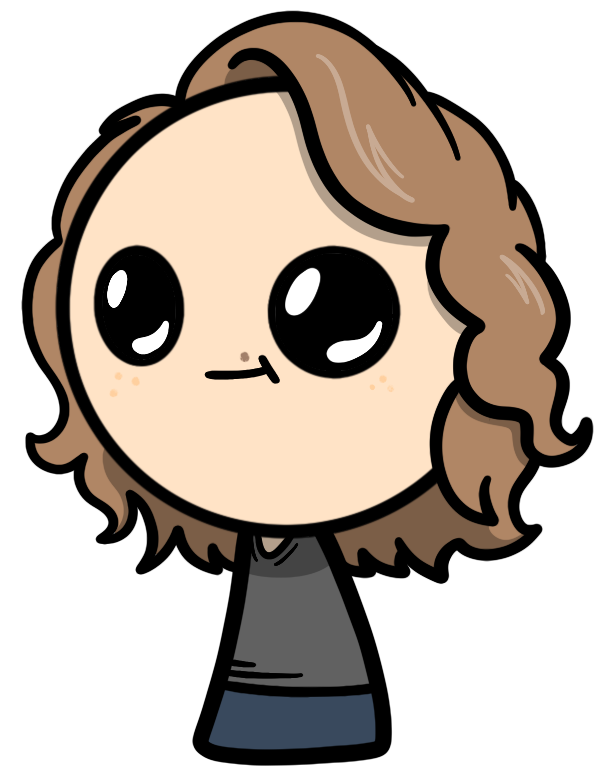
PhD Candidate - Philosophy (UQAM)
Camille Zimmermann
zimmermann.camille@courrier.uqam.ca
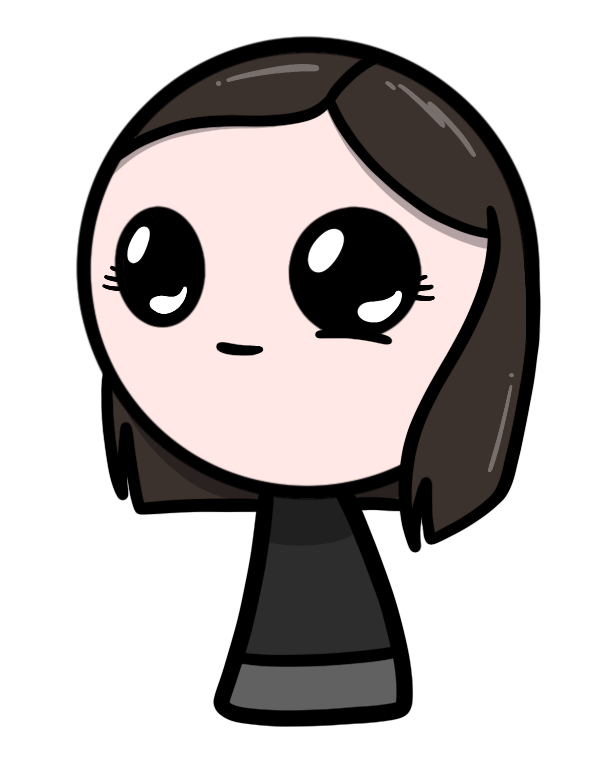
Professor - Philosophy (UQAM)
Amandine Catala
catala.amandine@uqam.ca
"Comics and Epistemic Enablement"
Luc Faucher discussed the medium of comics in the context of neurodiversity, again as epistemic enablement.
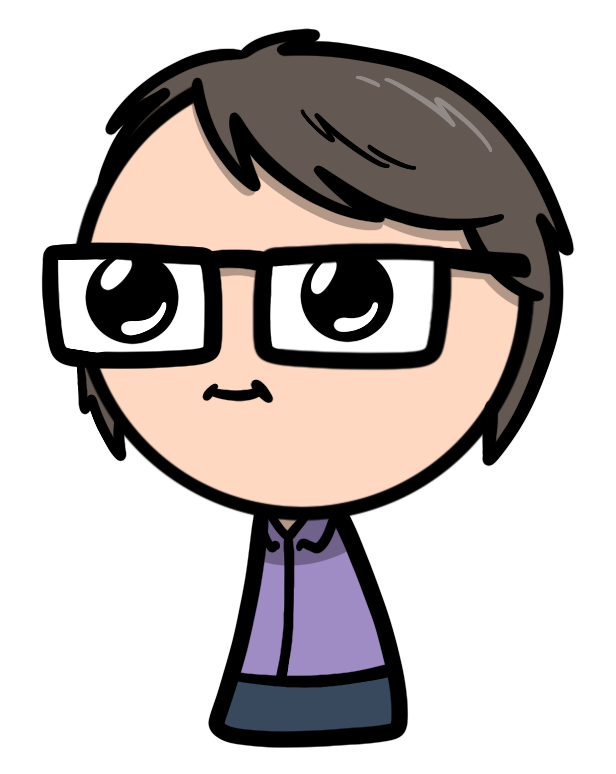
Professor - Philosophy (UQAM)
Luc Faucher
"Neurodiversity through Webcomics: Using Aesthetic Experiences for Epistemic Resistance"
We now continue with webcomics.
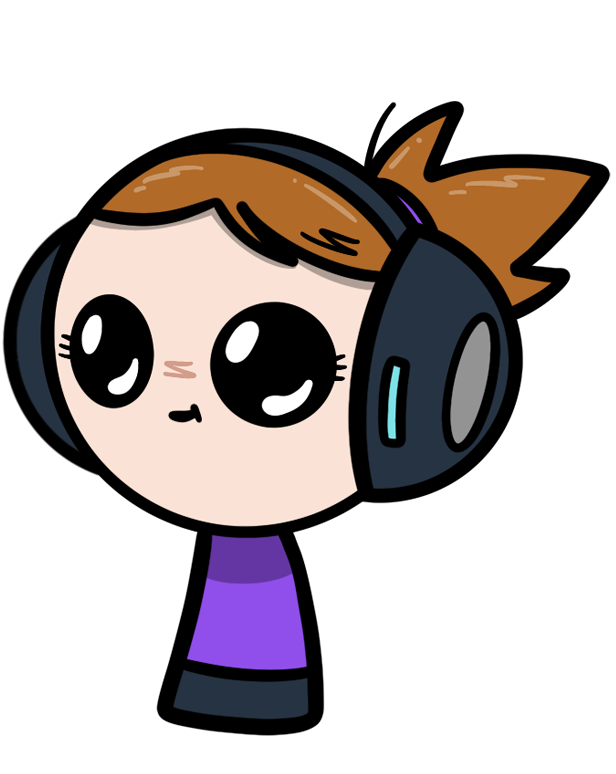
PhD Candidate - Philosophy (UQAM)
Mylène Legault
legault.mylene.2@courrier.uqam.ca
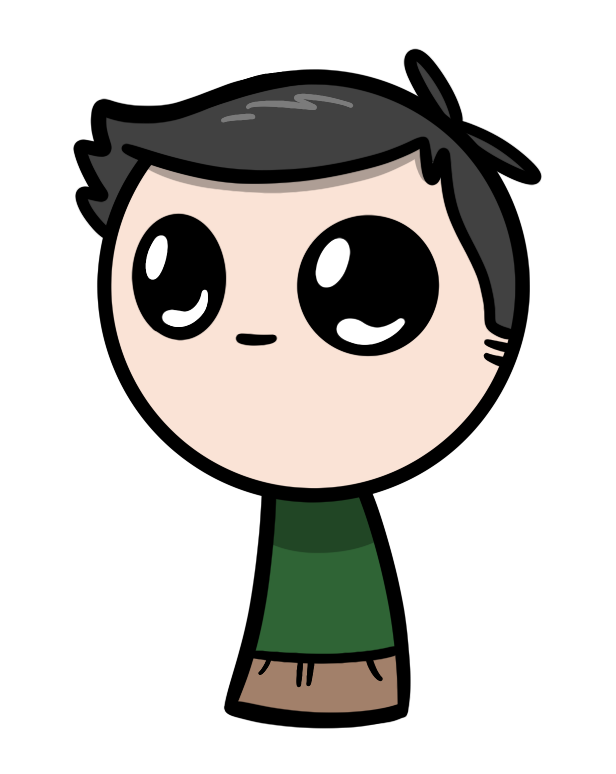
PhD Candidate - Philosophy (UQAM)
Jean-Nicolas Bourdon
bourdon.jean-nicolas@courrier.uqam.ca
PREFACE
About the
Format
Force of habit leads us to take the established ways of doing things as fixed, even though they are circumstantial. We were able to explore this reality, for example, during the pandemic: going to the office for work meetings, which, in all honesty, could have been e-mails. We also know that cultural habits are not insignificant, they allow the reproduction of comfortable modalities of interaction for dominant groups: those with the power to choose these modalities.
For our part of the panel, we propose to do things differently. Don't worry, we're not criticizing power point presentations and their timely sip of water pauses. Instead, we're inviting you to explore an alternative modality for interaction.
Public Speaking
Many people hate public speaking. It generally comes with discomforts and even fears, but some people have cognitive profiles that function in ways far removed from this type of interaction. However, this practice is socially maintained and considered essential for meeting and sharing. But is it really necessary? Does the public space absolutely have to be occupied in an oratory and synchronous way? What if these modalities are, in fact, infused with neuronormativity?
Human society is permeated by collective cultural resources with which individuals can, among other things, interpret, understand and communicate various aspects of their experiences. Since they are collective resources, their genesis, maintenance and dissemination are a function of the power dynamics that permeate our societies. One of these power dynamics is organized around norms regarding what is considered appropriate cognitive functioning: the group whose cognition corresponds to the norm (i.e., neurotypicals) dominates and those whose cognition deviates from the norm (i.e., neurodivergent) are marginalized. This epistemic marginalization has the effect of limiting the access of neurodivergent individuals to so-called "collective" epistemic resources, both in their elaboration and in their use.
This norm corresponds to neuronormativity, which is presented by Amandine Catala, Luc Faucher et Pierre Poirier (2021) in their paper Autism, epistemic injustice, and epistemic disablement: a relational account of epistemic agency.
Neuronormativity refers to the prevalent, neurotypical set of assumptions, norms, and practices that construes neurotypicality as the sole acceptable or superior mode of cognition, and that stigmatizes attitudes, behaviors, or actions that reflect neu- roatypical modes of cognition as deviant or inferior. Neuronormative assumptions, norms, and practices uphold standards regarding, for example, (what is neurotypi- cally considered) appropriate eye contact, facial expressions, prosody, conversa- tional flow, processing, and responsiveness—all of which can be difficult for autistic individuals to understand, sense, or apply, due to neurocognitive differences. (Catala & al., 2021)
Catala, A., Faucher, L. & Poirier, P. Autism, epistemic injustice, and epistemic disablement: a relational account of epistemic agency. Synthese (2021).
For a presentation on these questions, see Epistemic justice and epistemic authority on autism, Philosophy of Psychiatry Webinar, Montreal (Amandine Catala)
What’s with all these neuro- words?
Neurodiversity can refer to the neurological or neurocognitive variation naturally present in the human population. The term was first introduced by Judy Singer in a book published in 1993. The term also refers to a growing sociopolitical movement that promotes the recognition and inclusion of natural neurocognitive diversity (see, for example, Autistic Self Advocacy Network (ASAN), whose slogan is "Nothing About Us Without US!").
Nick Walker (2012) describes the neurodiversity movement as a new paradigm (the neurodiversity paradigm) in response to the pathology paradigm. It should be noted, however, that this movement has not been and is not immune to certain exclusionary mechanisms. For example, the movement began with verbal autistic individuals, but although the movement has since expanded to include many cognitive profiles, autistic individuals (and more recently ADHD individuals) still seem to dominate the movement.
Walker, N. (2012). Throw away the master's tools: Liberating ourselves from the pathology paradigm. Loud hands: Autistic people, speaking, 225-237.
Some progress can also be noted with the recent publication of "Neurodiversity Studies: A New Critical Paradigm" (Rosqvist et al., 2020), which illustrates the growing acceptance of this sociopolitical movement by the scientific community.
Rosqvist, H. B., Chown, N., & Stenning, A. (2020). Neurodiversity Studies: A New Critical Paradigm. Routledge.
Refers to individuals who fit the norm of cognitive functioning.
Neurodivergence belongs to a normative vocabulary. It requires a norm, which can be qualitative or quantitative, to distinguish typical from atypical neurocognitive profiles among natural neurological variation. However, the narrative is not so simple; cognition is a complex and dynamic process, and simply distinguishing between neurotypical and neuroatypical individuals shapes, at least in part, the cognition of those same individuals. Note that these criteria, quantitative or qualitative, are generally chosen for medical, practical, economic or moral reasons: because a type is considered "more functional", "more adapted, evolutionarily", "easier to interact with", "less demanding in resources" more characteristic of a human life worth living", etc.
Refers to individuals who do not fit the norm for cognitive functioning.
For those who are curious, we address these "neuro- words" here :
- Legault, M., Bourdon, J. & Poirier, P. (2021). From neurodiversity to neurodivergence by way of epistemic marginalization, Epistemological Issues in Neurodivergence and Atypical Cognition. Synthese.
- Legault, M., Bourdon, J. & Poirier, P. (2019) Neurocognitive variety in neurotypical environments: the source of “deficits” in autism, Journal of Behavioral and Brain Science (JBBS), vol.9, 246-272.
This is all well and good in theory, but what does it have to do with our presentation?
What we are trying to say - probably with too many words - is that those with cognitive profiles similar to ours tend to feel unsafe in traditional academic frameworks. This very presentation is the perfect opportunity to experiment with an alternative format where we can occupy the epistemic space and exist as we are. When the parameters of a common space of exchange only correspond to one type of cognitive profile, neurotypical profiles in this case, there can hardly be any exchange that is fair and inclusive. Our hope is that offering this alternative might open this type of space to those who remain outside the exchange.
Although this is an aside before we get into our main topic, you will notice that the form of our presentation reproduces our subject: the online viewing of webcomics, that is, asynchronous interactions around a shared representation, or the infamous content.
What a great question! Of course. If we have different cognitive and processing profiles with different modalities of expression, we can expect adjustments in synchronicity. Strategies for better epistemic justice include suspending judgment, giving the time, respecting varied forms of exchange and being open to different modalities of exchange.
Feel free to contact us for any comments and input into this exploration:
legault.mylene.2@courrier.uqam.ca
bourdon.jean-nicolas@courrier.uqam.ca
PART I
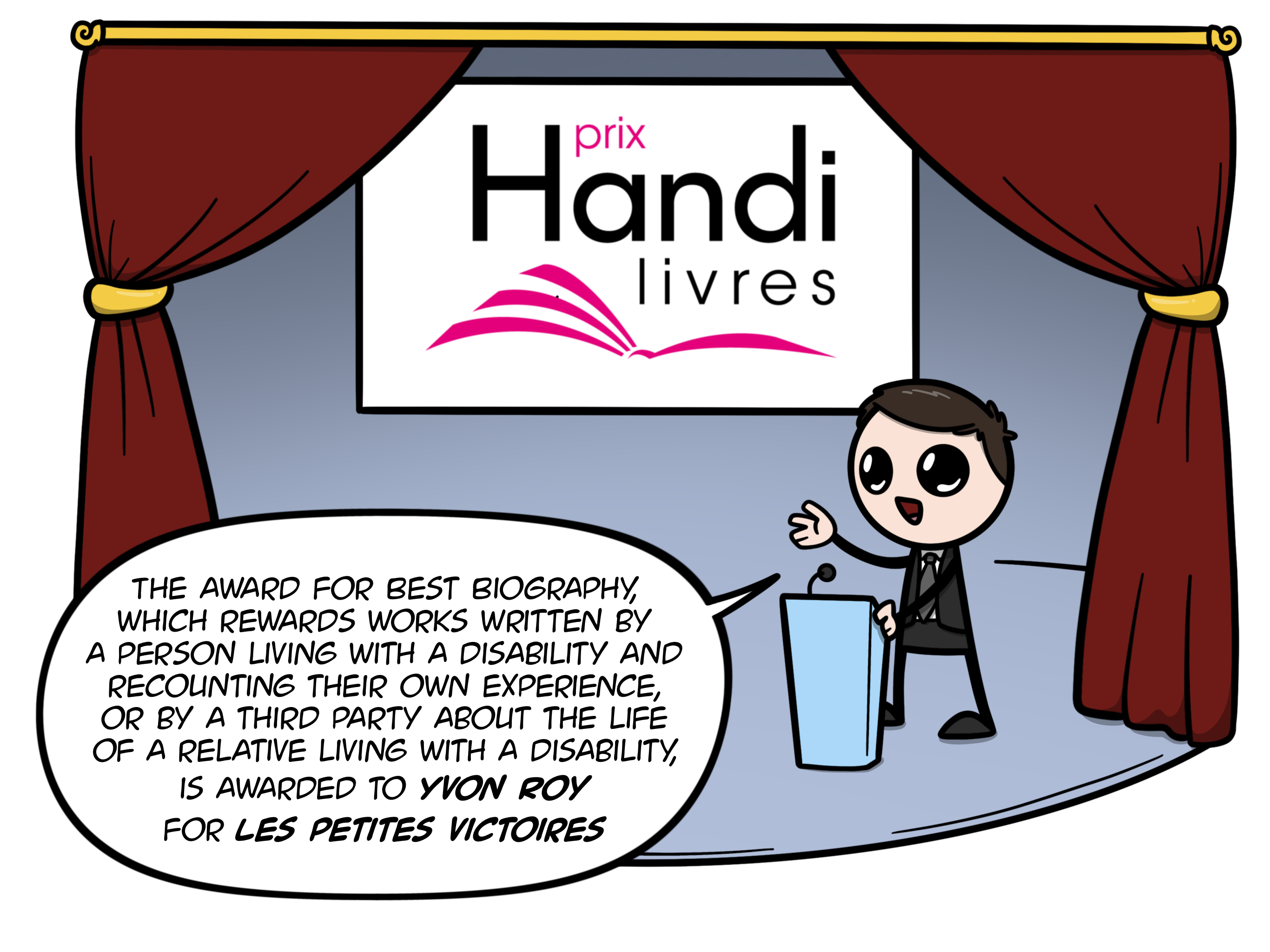
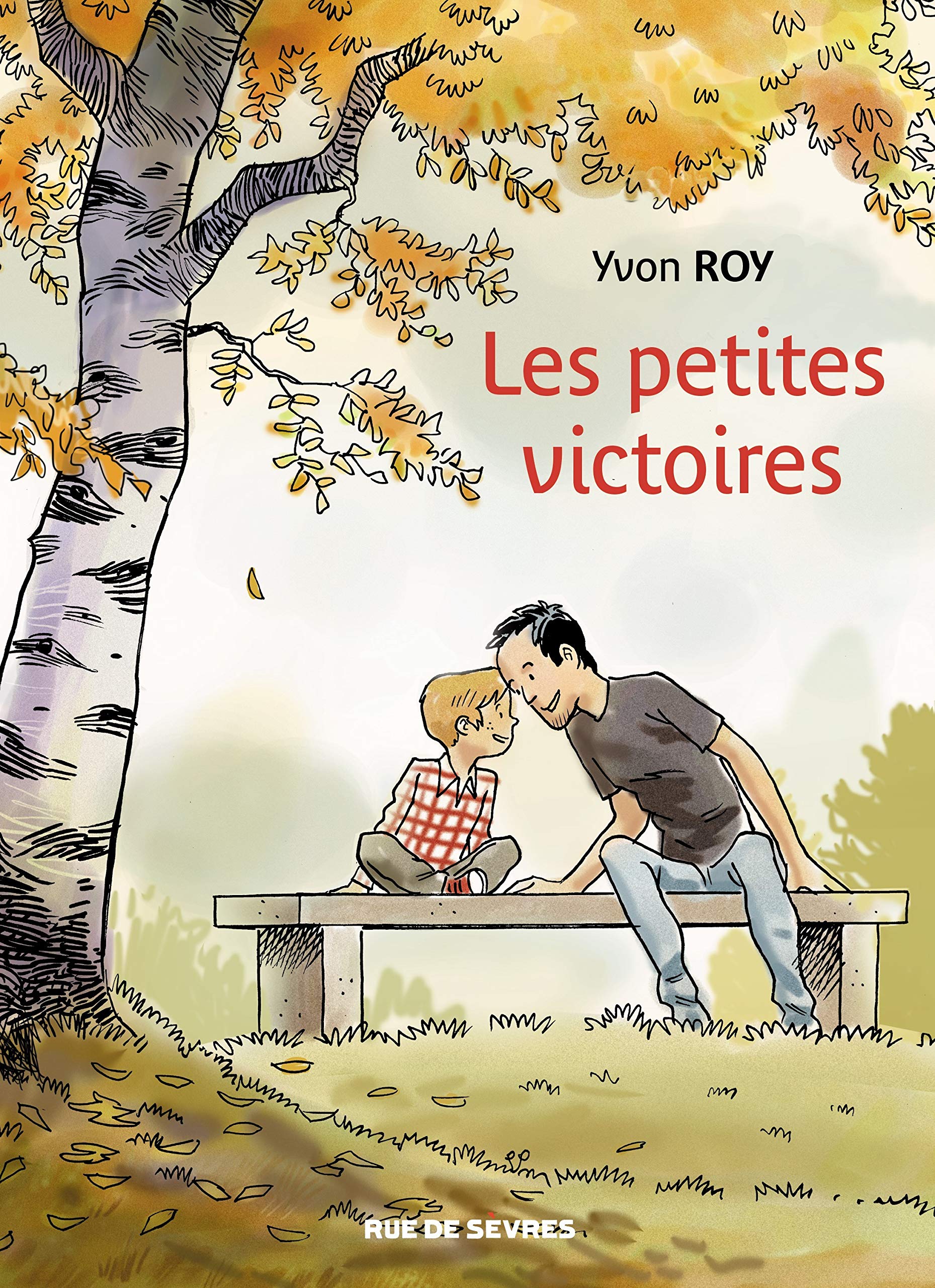
This is Marc, stand in for the author: Yvon Roy
This is his son, Olivier, who is autistic.
Les Petites Victoires showcases the fight of a father for his son, diagnosed with autism "in order to transform an announced defeat into small victories" (sic, our translation).
In his preface, Roy explains the contextualises the creation of his comic book:
"The idea was first suggested to me by a special educator who had worked with my son. She thought that what we had accomplished together was worth sharing so that other parents could find, through our experience, some useful information, if not a little hope" (our translation).
Interview
"When I started working with my boy to help him, with all the professionals in the field, I realized that often we were told, or they tried to tell us, that we had to work on living with autism, on accommodating autism. How we had to deal with different crises, different problems, whereas I thought, well, no, it's better, definitely, to try to overcome it than to live with it. And that's been kind of my master idea, let's say, for years with my boy, which is to try to push the boundaries constantly, always further." (Our translation)
Why choose this comic book?
This comic book is an example of a creation that is easily accessible to the general public that has been awarded and highly publicized - even winning an award that recognizes works written by a person living with a disability and recounting their own experience, or by a third party about the life of a relative living with a disability. In 2018, the publisher Rue de Sèvres announced a contract for a film adaptation, which caused reactions and led to the hashtag :
#boycottlespetitesvictoires
As we will show, this is an example of the social representations of autism that perpetuate dominant understandings that do not fit the lived experience of those directly concerned to the point of being discriminatory. It is also difficult to identify moments when the child (the autistic character) shows agentivity. Instead, he’s passive in his father’s story. In a way, Olivier is only a supporting character. This is exaclty why representation doesn't mean autorepresentation and why "nothing about us whitout us" matters: although this comic is presented as a positive narrative from the allist perspective (3rd person), the story is completely different from the standpoint of the autistic community’s testimonies (1st person).
An allist person is a non-autistic person.
To understand the term "allist", we must go back to the origin of the word "autistic" which comes from the Greek word "autos" which means "self". So the word "autistic" initially referred to a person withdrawn on themself, who lives in their own world. The term "allist" appeared in a satirical article to refer to non-autistic people by swaping “autos” for "allos" which refers to others. So an allist is a person who is focused on others or, to flip the usual narrative, a person who lives in other people’s worlds.
In spite of the satire, the term “allist” has remained in use among others because it allows to distinguish between "neurotypicals" and "allists". There are people who are not autistic, but who are not neurotypical: a non-autistic dyslexic person, for example.
For a deconstruction
of the problematic propositions of the comic book:
But do you know the story from the autistic community’s perspective?
This is where webcomics can serve as an accessible tool that allows the reversal of dominant representations by opening the floor to self-representations directly grounded in marginalized communities. But before continuing with the topic of webcomics, we wish to feature an excerpt from Les Petites Victoires that addresses a frequent theme in autism: eye contact.
Excerpt on eye contact
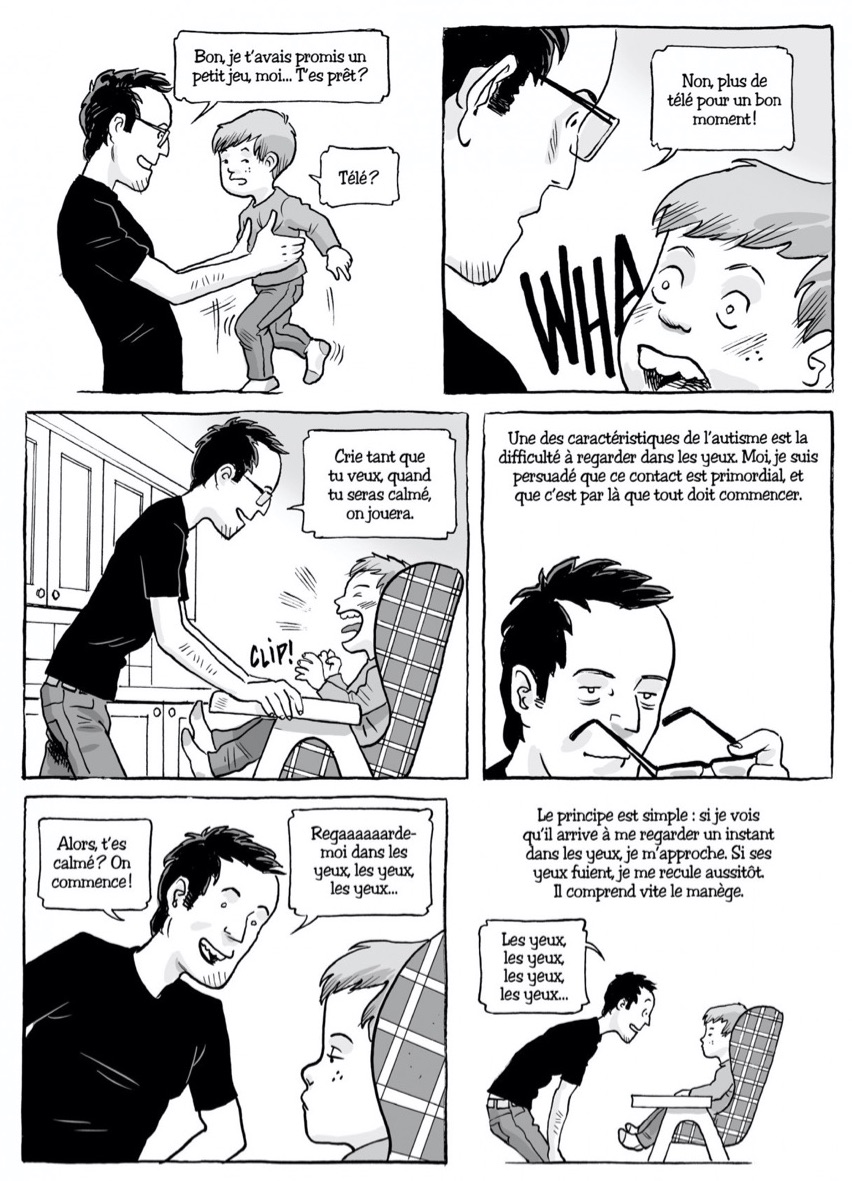
English translation
English translation
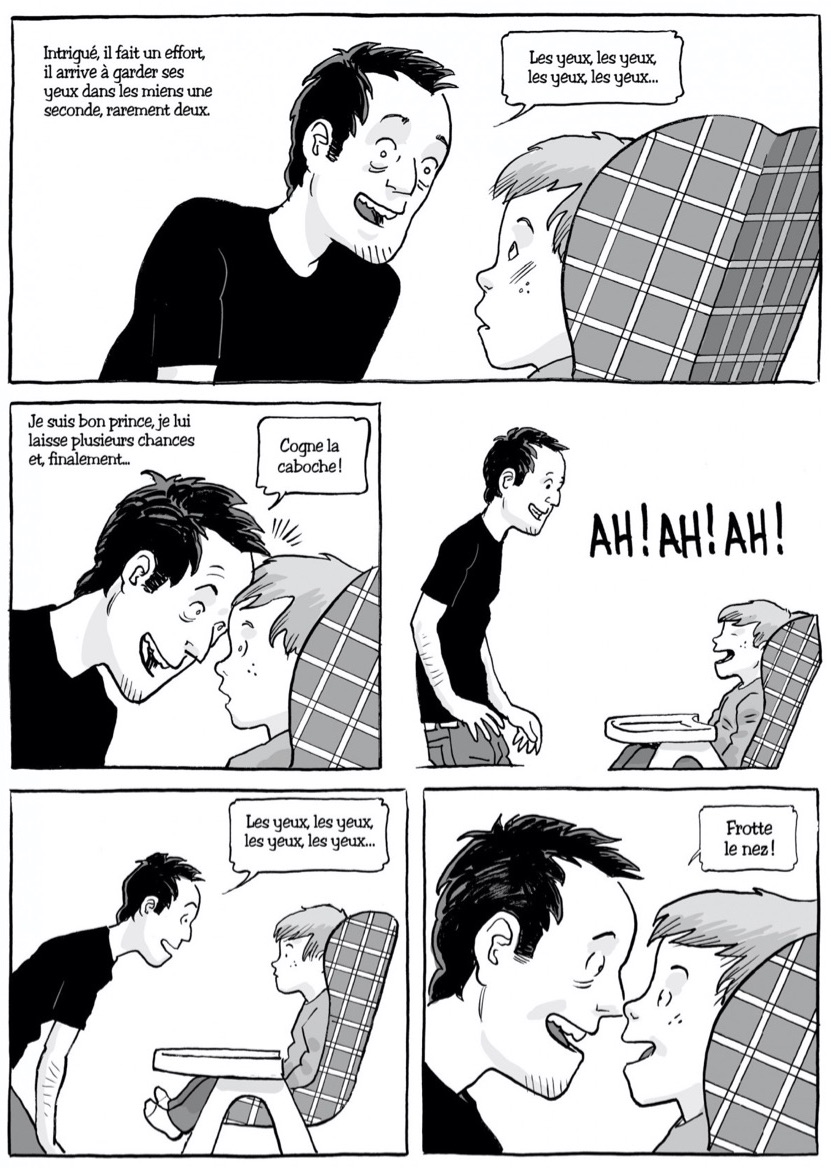
Excerpt from Yvon Roy's interview
"I worked a bit like we can work to sometimes desensitize a substance. Sometimes certain people can have an allergy, we can try to desensitize them.
Several parents have contacted me regarding the trick to get the child to look in the eyes. This is the first thing we worked on together, that is to say, I considered that being able to look in the eyes - we know that autistic children have difficulty looking directly in the eyes - I said to myself, if we don't have eye contact, we have nothing. We need that, it's the beginning of human interaction." (our translation)
TW: The host uses the term “prison” in reference to autism:
"In your story that you shared with us in Les Petites Victoires, there is obviously the moment when you get up to face, to accompany your child in that reality: to learn to understand him too, inside what he lives and this prison, in a way, from which he is pressured which is basically this condition." (our translation)
Link to the interview (in French)
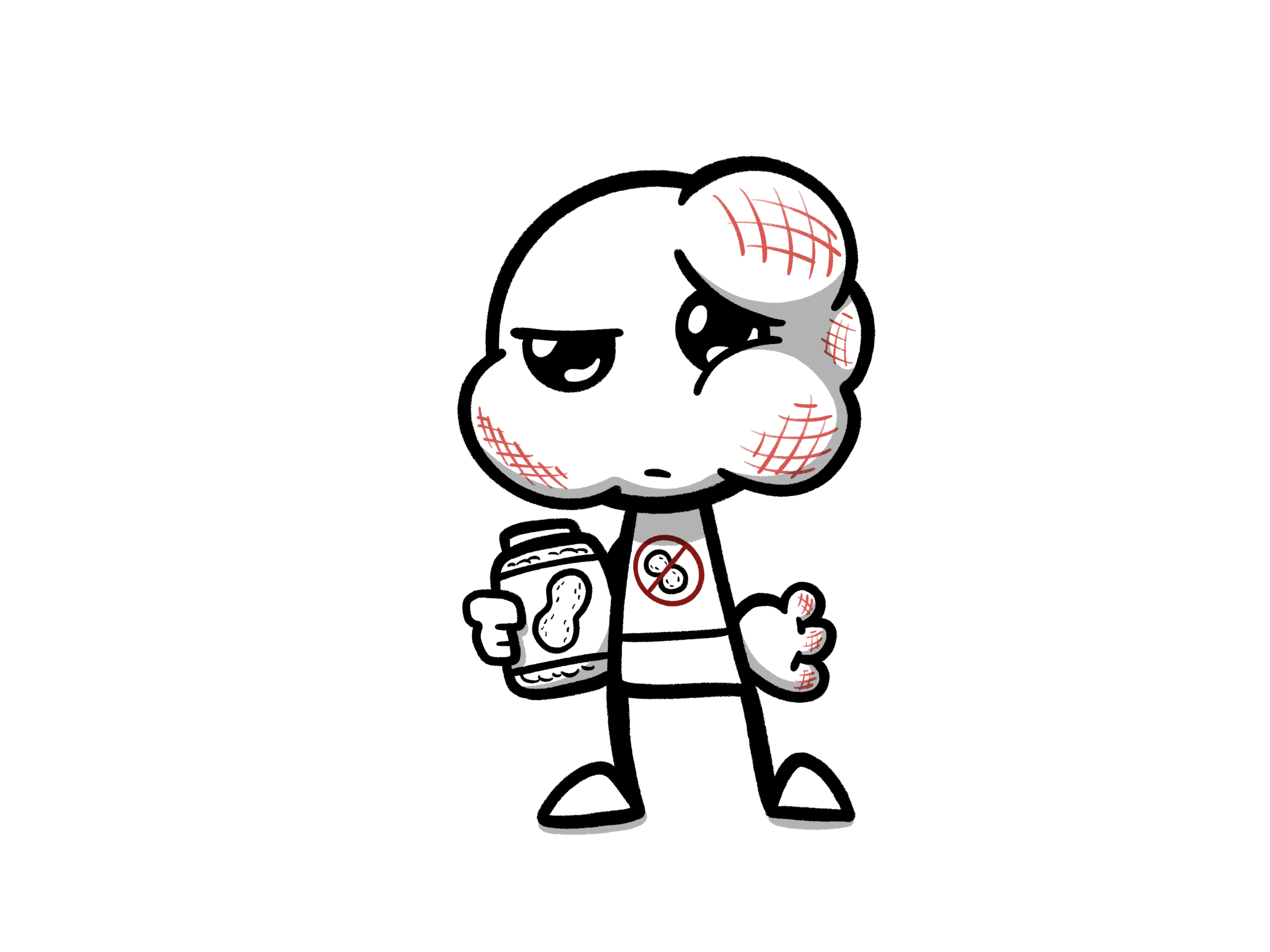
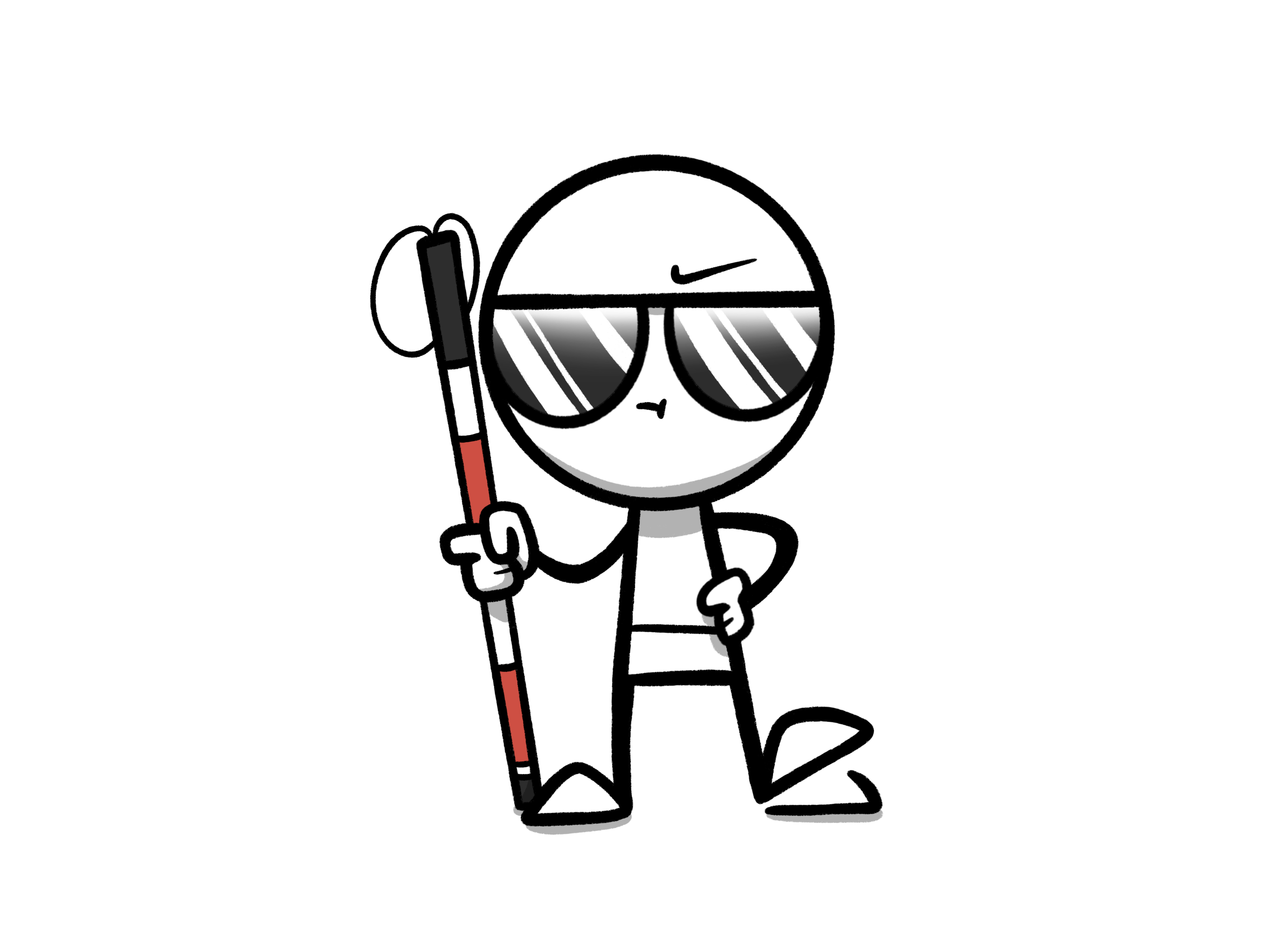
This scene is an example of neuronormativity
Recall that neuronormativity is the prevalent, neurotypical set of assumptions, norms, and practices that conceives of neurotypicality as the only acceptable or superior mode of cognition, and that stigmatizes attitudes, behaviors, or actions that reflect atypical modes of cognition as deviant or inferior.
This scene is told from the allist perspective and is presented with a positive outcome. In fact, as the author mentions, parents have applied this technique with their autistic children after being inspired by it.
But what if we ask autistic people how they feel about eye contact? That's exactly what we are going to do.
PART II
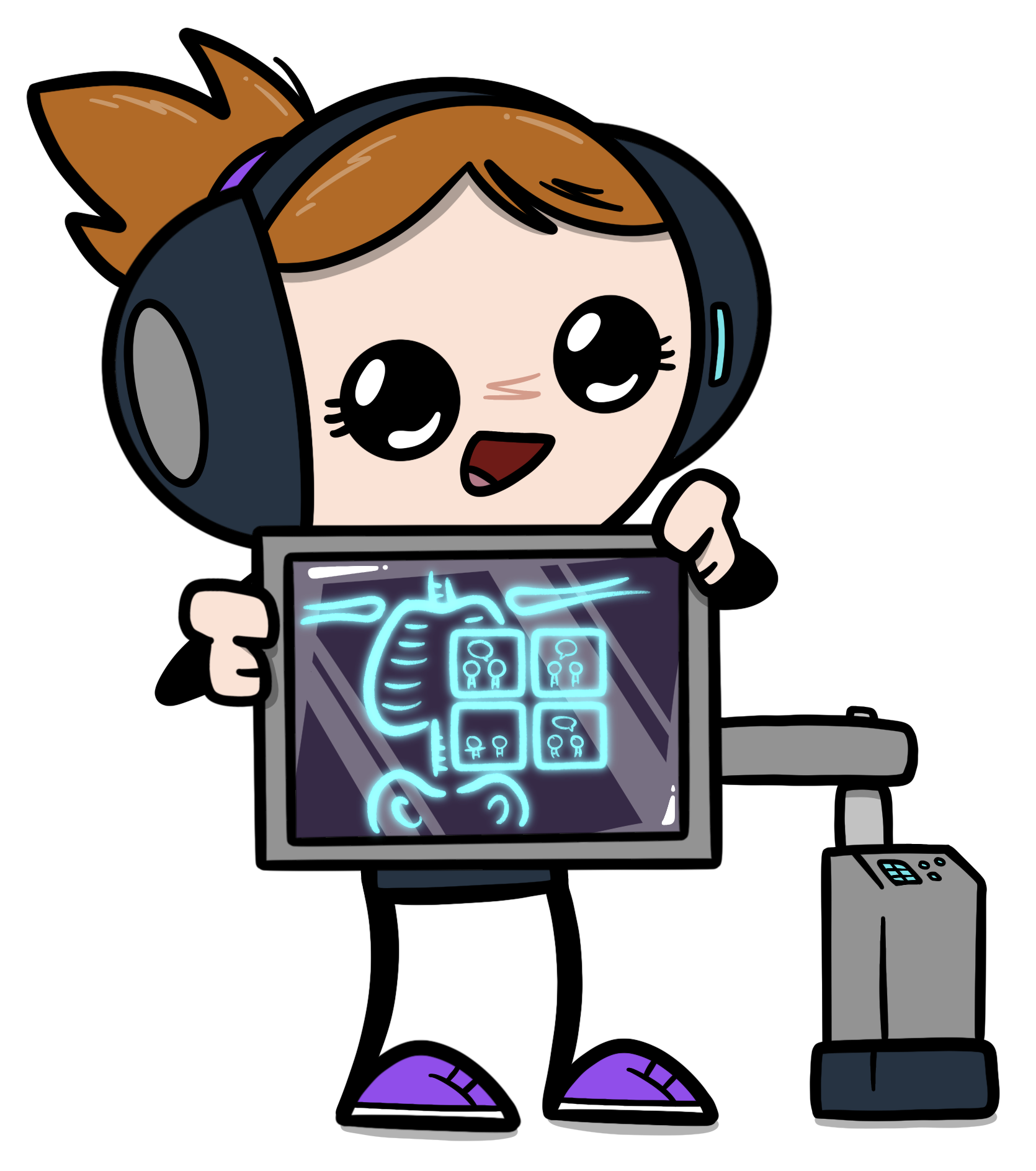
Why webcomics?
The medium of webcomic enables me to do something I don't know how to do otherwise: share how things feel on the inside.
Imagine. You come across a newspaper at the local coffee shop and recognize the face of a well-known personality. Yet you can't remember their name. It annoys you, you know you know it, it’s just not coming out, it stays there, on the tip of your tongue. You have time to come back to work, coffee in hand, and the name still hasn't come back to you, it still annoys you. You come across a colleague and you ask them, you describe the person, maybe clumsily at first (it would be so much easier with their name!), but you adjust to your interlocutor and, together, you can finally recall their name, it was so obvious!
It’s important to emphasize this feeling of annoyance. We rarely take the time to mention this annoyance when talking about epistemic injustices. Yet it is there, and it can even be painful: how do we make sense, to use Fricker's classic example, of our experience of sexual harassment when the concept does not yet exist? How can we share the feeling that something is wrong? This is where community comes into play and it is why the idea of "by and for" matters more than, say, a criterion of simplicity might. This is addressed by feminist epistemologies: for example, Longino argues for pragmatic values in science such as diffusion of power (as the importance of making research programs accessible to the actors involved in the research).
The impact of inadequate social representations on neurodiversity cannot be fully resolved by the traditional narrative of epistemic oppression and justice: adding new vocabulary to collective epistemic resources is not a panacea (we already have the word "autism" for example). So it is not only words that are missing, but rich and diverse lived experiences are also missing from the pool of shared resources.
The problem is that what is missing, the hermeneutical gaps, are not automatically apparent: social representations created by and for the dominant groups inadequately fill the hermeneutical gaps of marginalized groups. To that effect, let us recall here the Handi-Livre prize for the best biography which rewards works written by a person with a disability and telling his or her own experience, or by a third party on the life of a close relative with a disability: In the case of Les Petites Victoires, the award went to the biography of an allistic (non-autistic) person talking about autism. These inadequate social representations are difficult to resist: they are constantly and persistently reproduced. It is even harder when you don't have the words to replace theirs. But do we really have to wait for the right words to share our experiences? This is where illustration can become an attention grabbing action like shouting: an action that does not need words. This is what we propose here: a form of non-propositional epistemic resistance in response to hermeneutic injustice.
Webcomics are basically online comic books. They are mostly instantiated as short comics that take many forms and cover many topics. The most common form of webcomic is probably the blog (sometimes autobiographical, sometimes entirely fictional, sometimes both). Because they are mostly published independently by their artists, webcomics are an art form that is not limited by institutionalized power dynamics such as publishing houses or art galleries.
But the most important thing for us here is that webcomics are able to generate aesthetic experiences that allow viewers to better understand different aspects of the lived experience of neurodivergent people despite the inadequacy of mainstream epistemic resources.
In some ways, webcomics are a digital version of street art.
Although limited to a given geographical space for street art and to a particular digital platform for webcomics, there is this common idea where it is not so much the public that goes to the creation as the creation that goes to the public. We are no longer in a reserved and predefined space like a museum, a bookstore, a gallery or even a library.
Although a recognized artist can make street art, it is more difficult for an artist who does not belong to a complex and influential network to access some places of diffusion such as an art gallery. Webcomic is thus added to the tools that allow the production, use and transmission of more accurate social representations, participating in the collective understandings of the oppressions suffered by epistemically marginalized groups. The public and interactional aspects of social media that support webcomics make them a catalyst for direct dialogue with (but also within and between) marginalized communities.
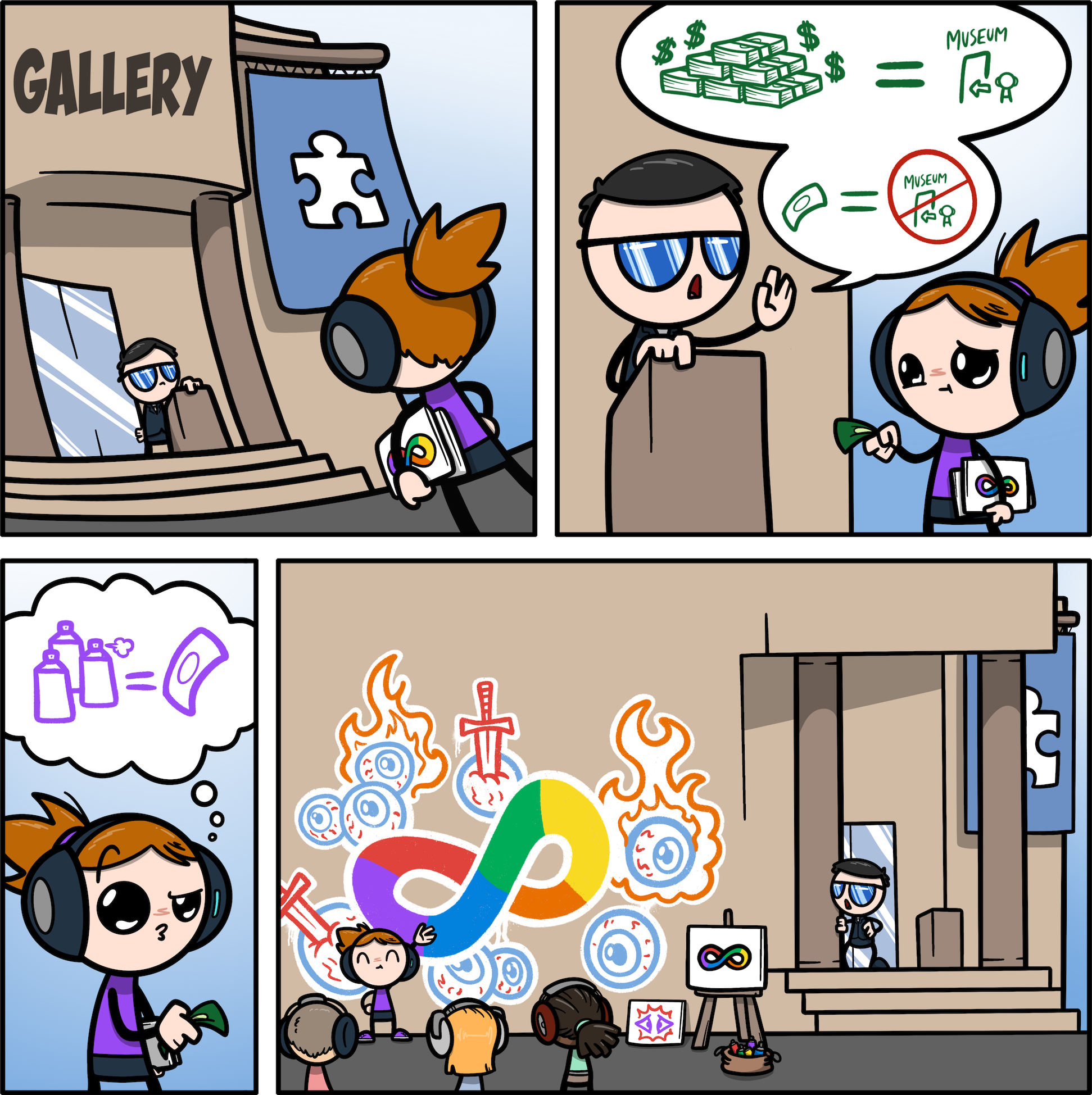
To put our epistemic resistance into action,
and to enhance our imaginative ressources, we chose to gather first-personal testimonies and descriptions of how eye contact can feel for autists.
After all, who better to provide insight into a given lived experience than those who live it? To do so, we used social media (instagram and facebook) to ask autistic followers of our webcomic (@lilyspectrum): How does eye contact feel to you? Although we are neurodivergent, it was important for us to go with the community beyond our individual experiences. For instance, we would never have thought of the sunburn idea on our own, but once we read those testimonies, it felt right.
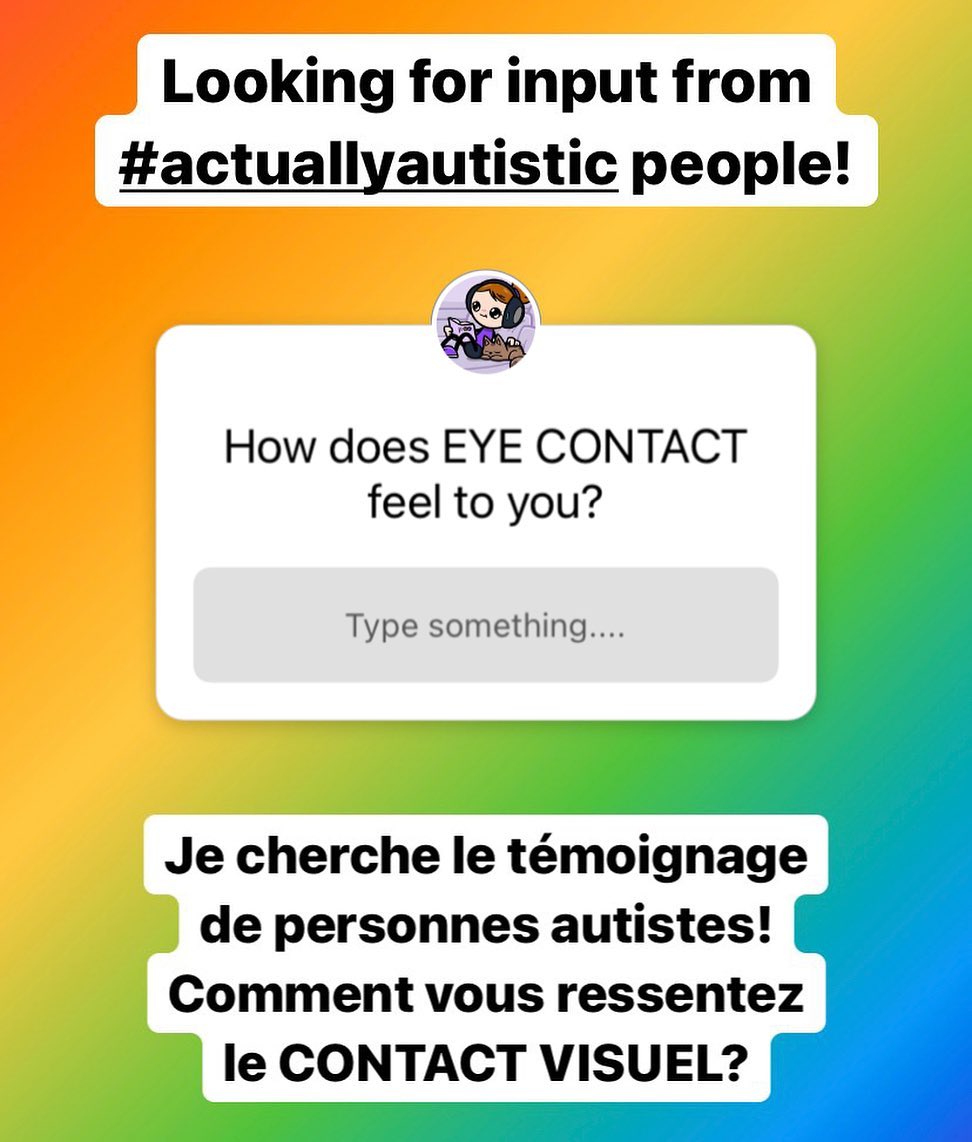
Both posts were made on November 8, and three days later, on November 11, we had received 175 testimonies. A few major themes emerged from these testimonies, which we used to base 7 webcomics or illustrations on. Keep in mind that, with this process, we do not claim to represent all there is to express about autists’ first-personal experience of eye contact. In fact, we suggest you visit these posts yourself to better understand the varied responses we got, and are still getting. And who knows, maybe this will allow you to add your own insight.
Publication
Since Monday, we have started to publish these comics on our social networks and we will continue to publish them in the following days
The interactions that take place around such webcomics are, we believe, an integral part of their complete aesthetic experience. These interactions often bring about clarifications, complementary details and descriptions or even added meaning. We thus invite you to visit these posts and interact with the community.
Webcomics
"I can do it but I can’t process anything else while doing it. My natural instinct and what feels the most right is to not look at someone’s face at all"
"It was drilled into me as a "rule" of politeness. I view it as just that, a rule. It's easy when there's multiple people because I can look around. But with one person, I have to look away or I end apparently end up staring"
"Everyone insisted on it, especially when they really wanted to correct a behavior or ensure I was paying attention. I honestly still don't love it, and prefer to look at noses or eyebrows to provide the impression I'm making eye contact"
"Eye contact was enforced during my childhood in mostly abusive ways and while it taught me to fake it, that made me hate it even more. Generally it just makes me uncomfortable and I find it quite distracting but it's also one of the most tiresome things to mask."
"Eye contact feels like they're staring into my soul, but with knives. I can make short eye contact before wanting to cry."
"It takes a concerted effort except for specific people."
"I’ve been so conditioned to make eye contact with people that when I met a lot of my friends for the first time they were kinda weirded out by me unblinkingly paying attention to them when they talked like 👁👄👁"
"It feels like someone is looking right past all my defenses and directly into my head. Not very pleasant."
"Terrifiant, j'ai vraiment l'impression qu'on me transperce à chaque fois …"
"Like I am being stabbed in the brain, itchy under the scalp, or suffocating. Anxiety is anxiety. I look at people's foreheads. They never know the difference but I am not forced to juggle the pain of eye contact and try to communicate. I am mostly non verbal and eye contact guarantees no words."
"Ça me met vraiment mal à l'aise et j'ai peur qu'on puisse mal interpréter si je regarde pas "correctement", je sais pas si je dois regarder quelqu'un dans les yeux ou combien de temps, il faut surtout pas que je regarde autre chose chez lui que ses yeux et du coup je sais pas quoi faire je préfère regarder le mur derrière mon interlocuteur 😂"
"Tout dépendra de la situation, de ma fatigue et de la personne. Certains contacts peuvent être transperçants (douloureux), d'autres envoutants (confusants), d'autres destabilisants (perturbants). En tous cas, si je regarde qqn dans les yeux, je suis sûr de perdre mon fil de pensée et/ou d'accorder mes réponses à ce que la personne ressent."
"Eye contact feels like burning discomfort, especially when I'm being told to do it."
"It’s extremely hard for me to maintain eye contact, and when people express to me that I should be looking at them when I’m talking to them, it puts me under more stress than just talking to them in the first place"
"somehow being told we should be making eye contact feels like being reprimanded as a child, at least to me.. I can't count the amount of times my mother would tell me to look her in the eyes as a child, and how humiliating/stressful it felt.. I legit forget to listen to people because I'm too busy trying to maintain eye contact."
"At best, awkward and uncomfortable. At worst, like someone's stabbed me in the eyes."
"It makes me uncomfortable but my mother forces me to look people in the eyes"
"Painful, but I feel like if I don't look ill be punished or called a liar. So I trained myself to look at something over their shoulder if not their foreheads to avoid harassment."
"Habituellement je regarde plutôt la bouche ou le nez des gens et ça semble passer crème pour donner l'illusion que je regarde dans les yeux (j'ai eu droit à l'expert en haute potentialité qui me disait que c'était impossible que je sois autiste car.. je le regardais dans les yeux ! Je regardais sa bouche depuis le début de l'entretien..). Je ne me force au contact visuel que de manière consciente et dans de rares cas précis : [suite]
(suite) par exemple si je suis attiré romantiquement par quelqu'un et désire que cette personne le perçoive (vu que le contact visuel accru est interprété de cette façon par beaucoup de neurotypiques). Mais cela reste un sacré effort et en général je détourne les yeux très rapidement, ça me met mal à l'aise, c'en est presque physique. Récemment un de nos profs en cours nous a fait faire une série d'exercices où on devait marcher vers quelqu'un/revenir à sa place à reculons en gardant le contact visuel constant avec cette personne.. je vous laisse deviner la torture que c'était"
"Transperçant!"
"J'ai l'impression que les yeux de la personne me percent à l'intérieur, je sais pas comment dire, c'est une sensation d'oppression aiguë."
"For me, looking in the eyes feels too exposed and open. It makes me feel like I can't hide and protect myself from the people."
"Eye contact makes me uncomfortable most of the time, because of the feeling that I am being silently judged or getting talked about negatively."
"It's fine when I'm listening to someone but when I'm the one talking it makes me get stage fright like I'm being put on the spot to judge for performance lol"
"Too intimate, inappropriate… I become incredibly self conscious as well, like am I doing eye contact right? Should I be mirroring their behavior or a close approximation or complete opposite? How many times should I blink? Can they tell I’m faking this human interaction? It’s incredibly stressful."
"It feels like something is a required check box. It’s like a math problem. Look, one, two, three. Okay. Look away. Zone out if you need to. Okay, it’s been 10ish seconds. Look back. One, two, three.. okay, look away! Don’t share at them! Wait! You’ve looked away too long! Look back! …..it’s that on repeat quite often lol"
"I hate it I get so nervous and then I break down."
"I don't like it, makes me really uncomfortable. I'm "good at it", because I mask well (😬). I never know what to do, if I'm looking to much or not enough and always use a whole lot of energy just on eye contact. Generally, the more comfortable I feel the less I look someone in the eyes. (Also eyes as a body part make me feel really icky so that's that)."
"Intimidating and uncomfortable, I feel too vulnerable and keep thinking am I doing this right?"
"Ça me met vraiment mal à l'aise et j'ai peur qu'on puisse mal interpréter si je regarde pas "correctement", je sais pas si je dois regarder quelqu'un dans les yeux ou combien de temps, il faut surtout pas que je regarde autre chose chez lui que ses yeux et du coup je sais pas quoi faire je préfère regarder le mur derrière mon interlocuteur 😂"
"Eh bien, quand j’étais petit, je parlais et écoutais souvent le monde sans les regarder dans les yeux. Maintenant, ça me dérange pas de parler et écouter avec le contact visuel, mais j’peux très bien comprendre ce que le monde me dit sans obligatoirement les regarder dans les yeux. Aussi, c’est vrai que ça me rend un peu mal à l’aise quand des inconnus me fixe du regard. C’est comme s’ils me jugeaient et j’sais pas ce que j’ai fait de mal."
"Direct eye contact feels like I am being judged. It also makes me feel uncomfortable because I become unable to perceive and read the rest of their body language."
"Démunie, nue. Percée à jour. C’est très fort comme sensation, et rarement agréable. J’y arrive avec mes enfants ou mon mari, mais même dans ce cas, pas trop longtemps. Si je veux tenir une conversation, et me concentrer, alors je dois ruser. Je regarde entre les deux yeux ou le plus souvent la bouche."
"Feel nausea and anxiety, and extremely naked. Yet my mother was adamant that I learned it and therefore I am able to do it, despite the uncomfortable feelings. Absolutely love your work, for once I can tell that I am not alone"
"I feel instant stress and I have to force myself to do it and to look "natural"."
"Honestly, each time it happens to me, the most awkward feeling I have is « where should I look exactly » ? When you make eye contact, are you expected to focus one eye specifically (which one, then ?), between the eyes, not focus at all, or try a weird way of having each eye "looking" into the facing one (i.e. my left eye "looking at" their right one and vice-versa) ? I'm also never sure if/when eye contact is expected, and when it happens, is there/what is the hidden message behind this specific contact, and/or am I sending an incorrect hidden message myself ? Then, with all these questions actively consuming my brain "computing power", everything else totally miss the point (sometimes, though, I can hide this issue because I have this kind of ability to "replay" the last few words/sentence I unconsciously heard, to process it with a delay but potentially without the proper context- so it's not reliable at all !!). "
"Weird and artificial. I can actually read people's eyes now, but it took me years to learn it."
"My parents rasied me to always look into the eyes, still feels wrong. Like, I am invaiding a personal space and being rude. Like trying to stare down their soul and violating their privacy. I still try to look at people in the eyes but have learned to just looks in differents points in the face so I don't seem rude."
"Eye contact feels too intimate to me for most interactions. If I make eye contact with you, it’s because it’s important. "
"Eye contact feels very intimate. If I’m forced to hold it for too long, I feel violated, like I’ve been touched without consent."
"I really hate eye contact in almost all circumstances. About the only exception is with someone I'm very intimate with. Eye contact feels extremely intimate to me in general so it only feels natural when it's with someone I've got a suitably intimate emotional connection to. Otherwise it feels like I'm staring into someone's soul and I can see everything and they're staring into mine and seeing the same (even if I know they're not)."
"Invasive, extremely personal. I'm only comfortable looking my husband in the eyes"
"It feels like I’m standing too close to someone, I don’t know if that’s too vague of a comparison but it feels way too intimate. So I only do it when necessary or when I’m comfortable with that person."
"It feels creepy to me"
"I don't like it, makes me really uncomfortable. I'm "good at it", because I mask well (😬). I never know what to do, if I'm looking to much or not enough and always use a whole lot of energy just on eye contact. Generally, the more comfortable I feel the less I look someone in the eyes. (Also eyes as a body part make me feel really icky so that's that)."
"I hate eye contact. It almost hurts. But it’s nessesary to have a successful professional life, and my parents trained me well as a child. They would ask me people’s eye color after I met them to see if I made eye contact. Being trained like that at a very young age was incredibly difficult and felt unfair, but I’m very grateful that they pushed me now that I’m an adult."
"I can't do it, it makes me feel funny in a bad way and makes me feel kind of .. unsafe? and uncomfy I don't exactly know the word for the first one, I don't mind people looking at me but I won't look back"
"It's incredibly intimate and overwhelmingly so, particularly with strangers. And the more my emotions are revved up, the less I can tolerate it. It genuinely feels as though someone can see into my mind almost, even though I know that they can't. On the plus side, when I'm with someone I deeply, deeply love, sometimes that's okay because I want them to see how much I love them... but then that tends to make THEM feel awkward and uncomfortable too. LOL For me, it falls into the same category as standing too close, invading personal space, touching someone without consent etc. It's intimate, and can very easily become violating when you don't want it. And that;s so hard to explain to NT folk who expect you to look them in the eye all the time."
"It's okay with people I know, but I don't feel comfortable with eye contact with strangers, it almost feels like an invasion of privacy."
"eye contact feels so weird and creepy and if i have to make eye contact with someone, then ill quickly feel exhausted."
"It feels like a boundary rupture unless I completely and totally feel comfortable in a container of safety with another it probably won’t happen much."
"Well... I can't let anyone touch my eyeballs."
"Trop intrusif. Comme si l autre avait la perception de mes pensées. C est comme se montrer nue."
"Intense/ overwhelming/ fiery/ intrusive. Sometimes painful/ always difficult with strangers. Ok with intimate friends and family."
"Démunie, nue. Percée à jour. C’est très fort comme sensation, et rarement agréable. J’y arrive avec mes enfants ou mon mari, mais même dans ce cas, pas trop longtemps. Si je veux tenir une conversation, et me concentrer, alors je dois ruser. Je regarde entre les deux yeux ou le plus souvent la bouche."
"Feel nausea and anxiety, and extremely naked. Yet my mother was adamant that I learned it and therefore I am able to do it, despite the uncomfortable feelings. Absolutely love your work, for once I can tell that I am not alone"
"confronting and very intimate ..i feel naked"
"Quelque chose d'extrêmement intime, que je ne peux pas partager avec n'importe qui sinon je suis déstabilisée car je bloque sur cette sensation d'intimité forcée. Depuis le diagnostic, je me permets de ne plus regarder le visage des gens (je ne travaille pas). Quel soulagement!"
"Eye contact feels like they're staring into my soul, but with knives. I can make short eye contact before wanting to cry."
"It’s like being asked to look directly at the sun. I flinch, I can’t do it…"
"It feels like they gonna shoot me with laserbeams. Like Cyclops from X-Men. I van handle it for 10 seconds. I get panick attacks of it's to long. Even with my bf makes me on edge. I got a major panic attack during a being social etc exam (idk how it's in English is). It was so bad. They let me past because otherwise i needed to do the whole year over."
"Feels like I’m staring at the sun and I can only look a person in the eyes for 30 seconds or so before my eyes start to hurt a bit. I can only look animals in the eye."
"Like flames of intense awkwardness are scorching my retinas."
"When I was younger I always had trouble making eye contact. I’ve gotten better at it in recent years but its still painful to me."
"Eye contact feels like burning discomfort, especially when I'm being told to do it."
"Ça me demande beaucoup de concentration. J'ai l'impression que ça me fait mal aux yeux et quand j'étais plus jeune je pouvais même ne plus vraiment entendre ce que la personne me disait. Par contre ce n'est plus un problème quand je me mets vraiment en colère au point de vouloir me battre."
"Ca va de la gêne à la sensation de brûlure, ça dépend des personnes je suppose. On peut parfaitement regarder le nez, la bouche, entre les yeux sans que l'autre ne sen rende compte."
"I can’t think if I have to. Feels like pressure."
"Bad, I feel like my head is going to explode if I look at someone's eyes for too long. I suspect it's probably a blood pressure drop or adrenaline, but it feels awful. I honestly don't get why so many people require eye contact when speaking. I can make eye contact, but it's really difficult to understand what the person is saying because I'm too focused on how uncomfortable I feel and how incredibly awkward it is to stare at someone's eyes"
"It feels literally painful and I’m always afraid the other person can tell what I’m feeling/thinking. I’m comfortable with eye contact with very trusted folks in my life though."
"Painful"
"I really hate eye contact in almost all circumstances. About the only exception is with someone I'm very intimate with. Eye contact feels extremely intimate to me in general so it only feels natural when it's with someone I've got a suitably intimate emotional connection to. Otherwise it feels like I'm staring into someone's soul and I can see everything and they're staring into mine and seeing the same (even if I know they're not)."
"I cant make eye contact with literally anyone. Its uncomfortable, and even when its not, i cant listen proberly to what people are saying when i focus on the eyes. I just cant do it at anytime with anyone, only for one second maximum. Its like staring into someone's soul, its too much."
"J’ai l’impression d’être absorbée par les yeux de la personne et en même temps comme si on pouvait voir ce qu’il y a à l’intérieur de moi."
"honestly it feels like i am being sucked into their soul… i can’t maintain it if i want a conversation because i just get lost"
"Like someone staring at my soul? I almost feel like that's the part of masking that exhausts me the most!"
"It's uncomfortable. But sometimes if I want to intimidate someone I stare deep into their eyes and make them feel unnerved like I'm looking into their soul."
"Tout dépendra de la situation, de ma fatigue et de la personne. Certains contacts peuvent être transperçants (douloureux), d'autres envoutants (confusants), d'autres destabilisants (perturbants). En tous cas, si je regarde qqn dans les yeux, je suis sûr de perdre mon fil de pensée et/ou d'accorder mes réponses à ce que la personne ressent."
"Trop intrusif. Comme si l autre avait la perception de mes pensées. C est comme se montrer nue."
"J’ai l’impression d’entrer dans l’âme de la personne. Je trouve ça trop privé. Alors je ne regarde que ceux dont j’ai vraiment envie de découvrir ce qu’il y a au plus profond d’eux même"
"I'm okay with it for small periods of time, but if it's more than a minute, I have to look away, it makes me super uncomfortable after that"
"It took me around 2 years to be able to do eye contact (kind of struggle still-) but normally if im uncomfortable looking at the eyes, ill just look at the nose instead"
"Awkward. The longest I can probably do it is for a few seconds, but sometimes it’s physically impossible for me to look someone in the eyes even for one second."
"Ça me met juste très mal à l’aise, et du coup je préfère regarder ailleurs et ne regarde les gens dans les yeux s’iels ne me regardent pas."
"Incapable de soutenir un eye contact sauf avec certaine personnes... Ma famille (ma mere, mon pere, ma soeur), ma nièce, mon beau frère et mon conjoint. Quelques amis specifique aussi... Mais sinon incapable. Je chercher tjrs a "évader" ses eye contact."
"Uncomfortable. I have trouble maintaining eye contact for long, especially in a conversation. However, I did figure out that talking with your hands is a great way to distract the other person's eyes from your and gives you a reason not to look at them."
"havent made eye contact with anyone (while i'm talking to them, that is) except my cats in years if that tells you anyone"
"When I was younger, it used to feel like when you held two magnets together both ends the same, it felt like no matter how hard you held them together, it would want to repel forcefully, my head wanted to repel and look past to the left or right or down or up like a magnet would, and when I managed to hold it against that feeling, my eyes would water up, not tears from sadness or anything, but they released tears, now I can manage it but it's still not comfortable to do, it depends on how comfortable I feel with the person or people or how stimulated I feel in an environment"
"It’s like when you hold two magnets with the same polarity against each other. Even if you want to put them together they won’t do it. The magnets are like my eyes. They just can’t center on the other persons eyes or it will cost a lot of energy. Like with holding magnets with the same polarity together. It’s just all in all very uncomfortable and draining. Btw I’m undiagnosed so I hope I can still answer here. Also I really really love your account and the stuff you do ^^ /g"
"Ça me met vraiment mal à l'aise et j'ai peur qu'on puisse mal interpréter si je regarde pas "correctement", je sais pas si je dois regarder quelqu'un dans les yeux ou combien de temps, il faut surtout pas que je regarde autre chose chez lui que ses yeux et du coup je sais pas quoi faire je préfère regarder le mur derrière mon interlocuteur 😂"
"Je me sens obligé de regarder chaque personne dans les yeux mais aussitôt que le contact est réciproque je baisse le regard aussi vite que mon ombre ainsi j'ai l'impression que j'ai fait ma part! haha! Par contre avec le monde avec qui je suis très, très à l'aise je vais quelque fois fixer les yeux, on dirait que j'essaie de comprendre pourquoi je fuis ceux des inconnus, alors je fixe en grand questionnement interne!"
"Awkward and physically painful , strong need to move my eyes away from it"
"Souvent trop intense… Et en plus il se passe tellement de choses autour des yeux qui m'intéressent plus et/ou me sécurisent plus! Je fixe puis je zappe, j'y reviens et je rezappe… Les sourcils, les lunettes, sont des bons compromis aussi, ou fixer mon regard dans le vague direction le visage ou le pourtour du visage… Ou fixer le visage avec une attitude très intéressée (posture corporelle de l'attention soutenue) quand la personne regarde AILLEURS, et quand son regard se tourne vers moi, fixer 1s seconde, sourire, et me tourner ailleurs vers qqn d'autre qui parle mais ne regarde pas vers moi à ce moment là, ou trouver à m'occuper avec un objet, et jongler comme ça."
"Je n'aime pas regarder sans les yeux, je ne sais pas, c'est plus fort que moi, je suis mal à l'aise, je ressens le besoin de regarder ailleurs. Du coup j'aime bien discuter quand je suis au resto ou quand on fait une activité, il y a l'excuse d'être occupée en même temps pour ne pas se regarder"
"Habituellement je regarde plutôt la bouche ou le nez des gens et ça semble passer crème pour donner l'illusion que je regarde dans les yeux (j'ai eu droit à l'expert en haute potentialité qui me disait que c'était impossible que je sois autiste car.. je le regardais dans les yeux ! Je regardais sa bouche depuis le début de l'entretien..). Je ne me force au contact visuel que de manière consciente et dans de rares cas précis : par exemple si je suis attiré romantiquement par quelqu'un et désire que cette personne le perçoive (vu que le contact visuel accru est interprété de cette façon par beaucoup de neurotypiques). Mais cela reste un sacré effort et en général je détourne les yeux très rapidement, ça me met mal à l'aise, c'en est presque physique. Récemment un de nos profs en cours nous a fait faire une série d'exercices où on devait marcher vers quelqu'un/revenir à sa place à reculons en gardant le contact visuel constant avec cette personne.. je vous laisse deviner la torture que c'était"
"Lorsque c'est quelqu'un avec qui je suis à l'aise ca va à une certaine distance mais de trop prêt je ressens un malaise assez vite. Si j'ai le malheur de croisé le regard avec un(e) inconnu(e) dans la rue ou dans un commerce, je regarde ailleurs aussitôt, gros malaise. C'est pour ça que j'évite de regarder les gens."
Thank you for joining us in this exploration!
We hope this experience was (and will be) as enriching for you as it was for us to come up with. We invite you to engage with us and the community through our posts or in the comments bellow!

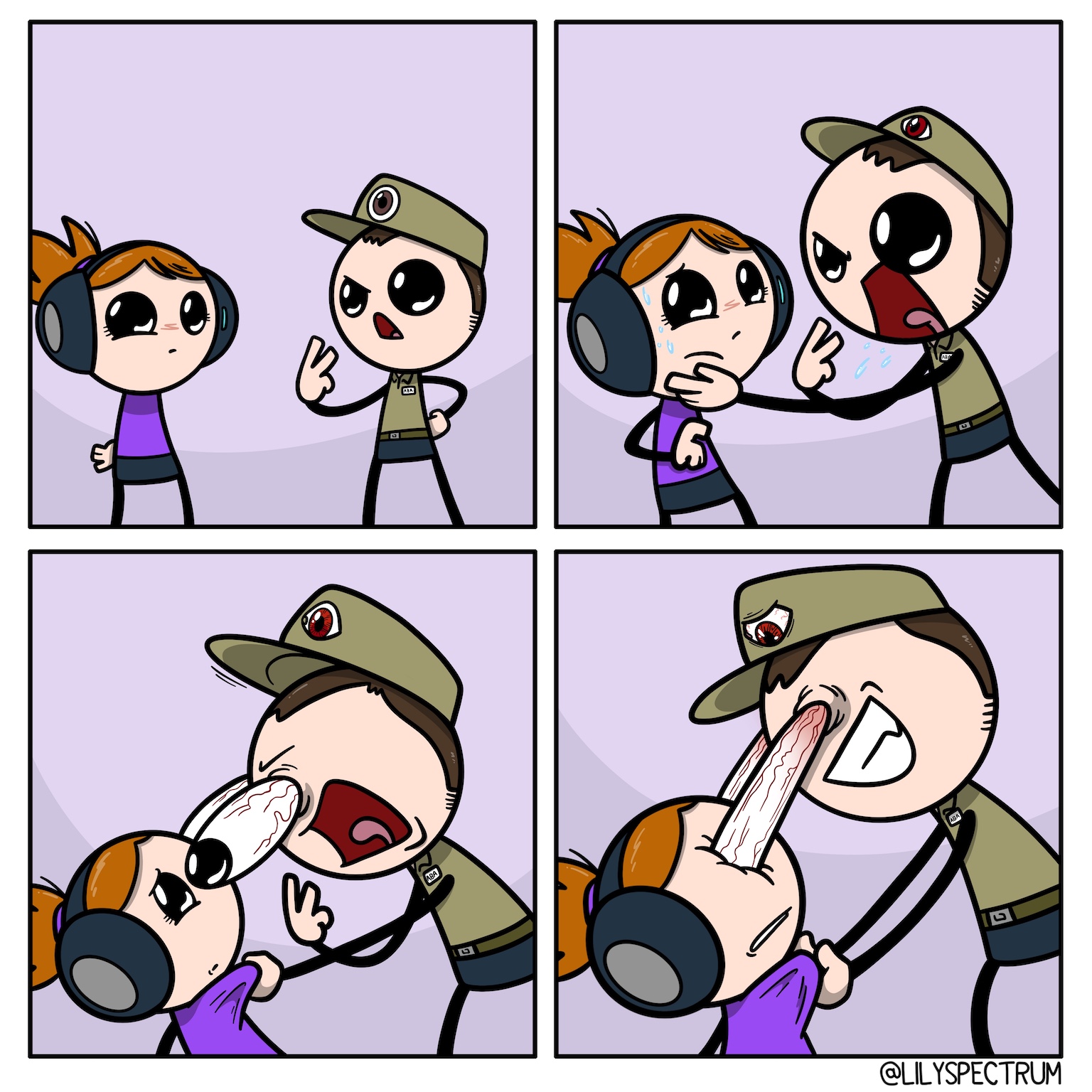
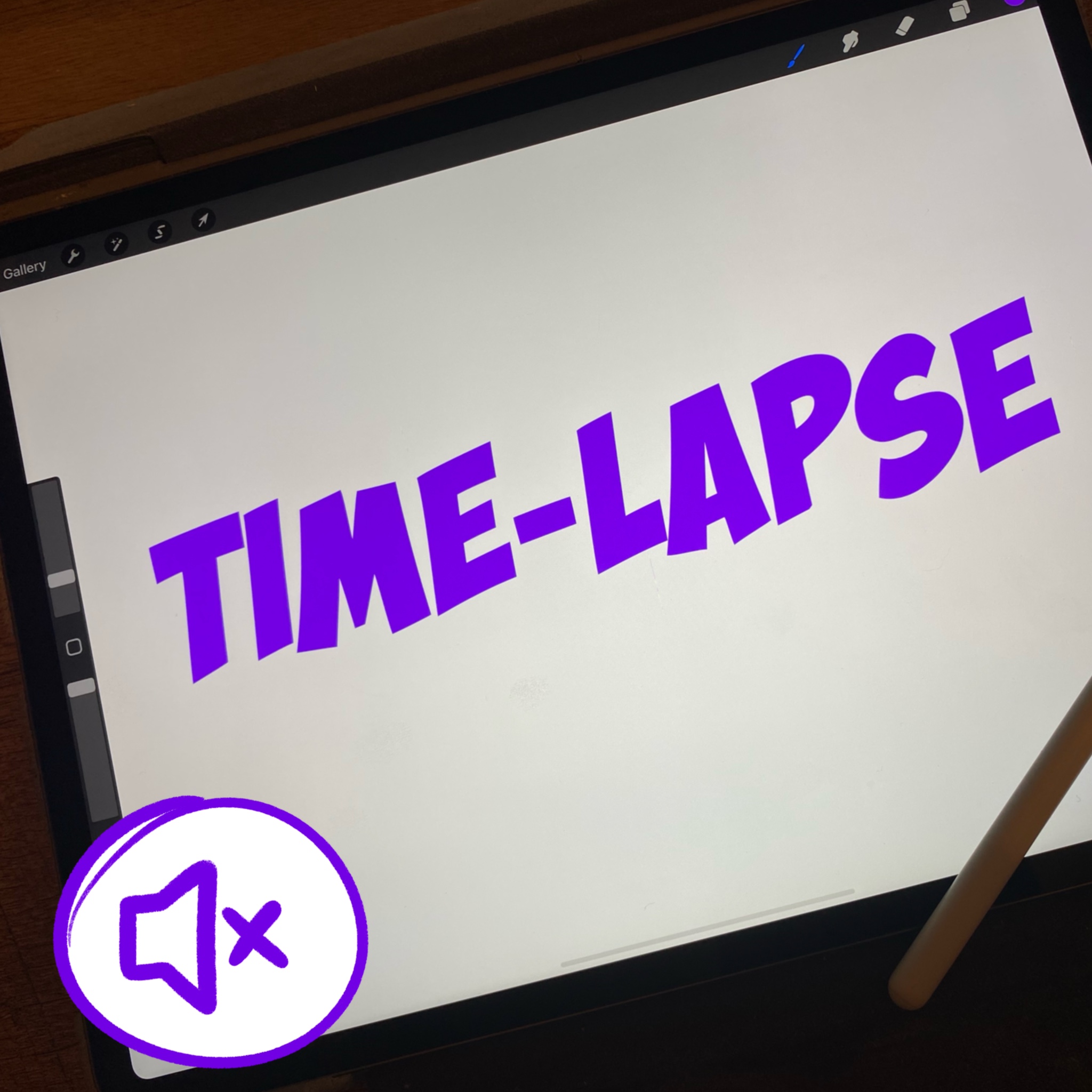
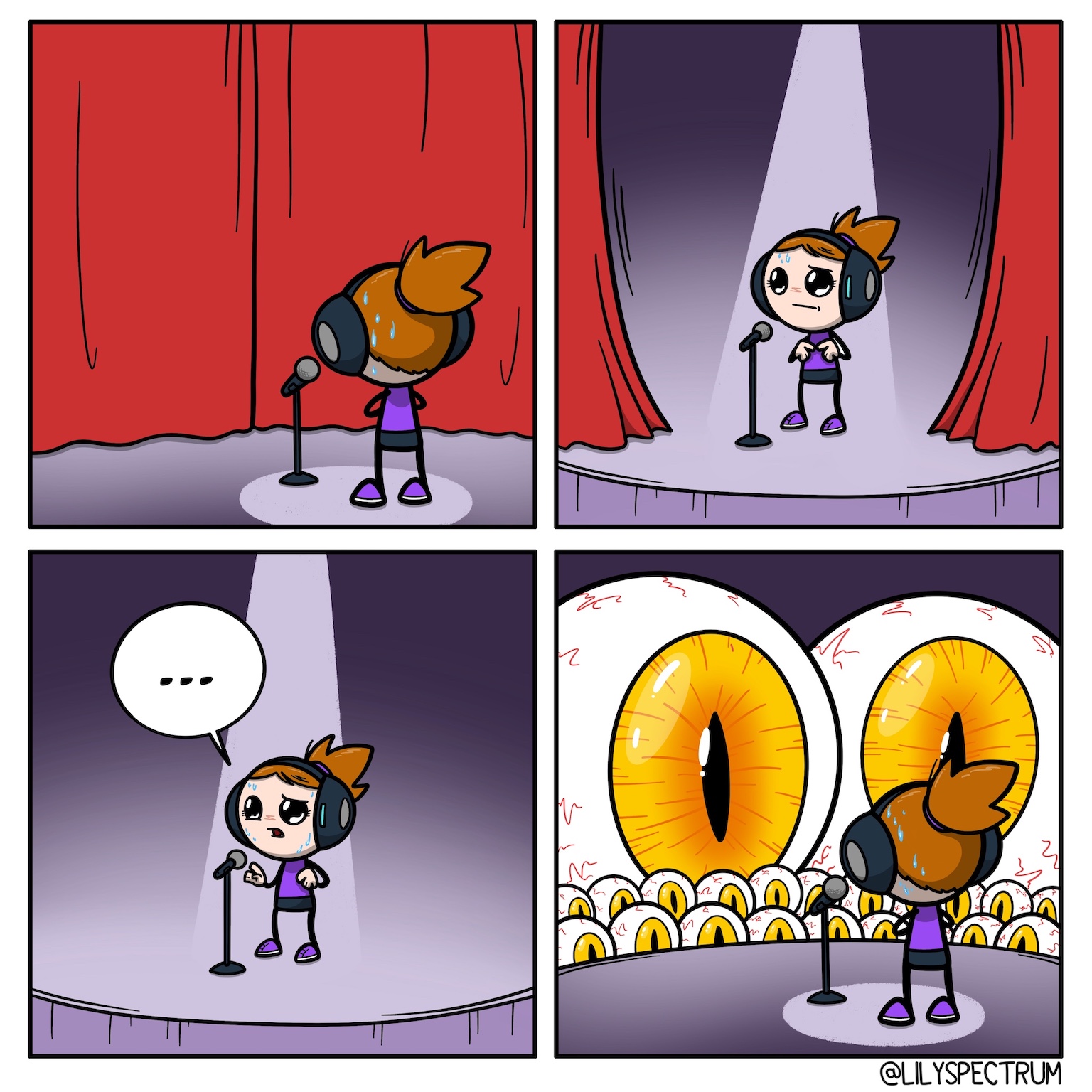
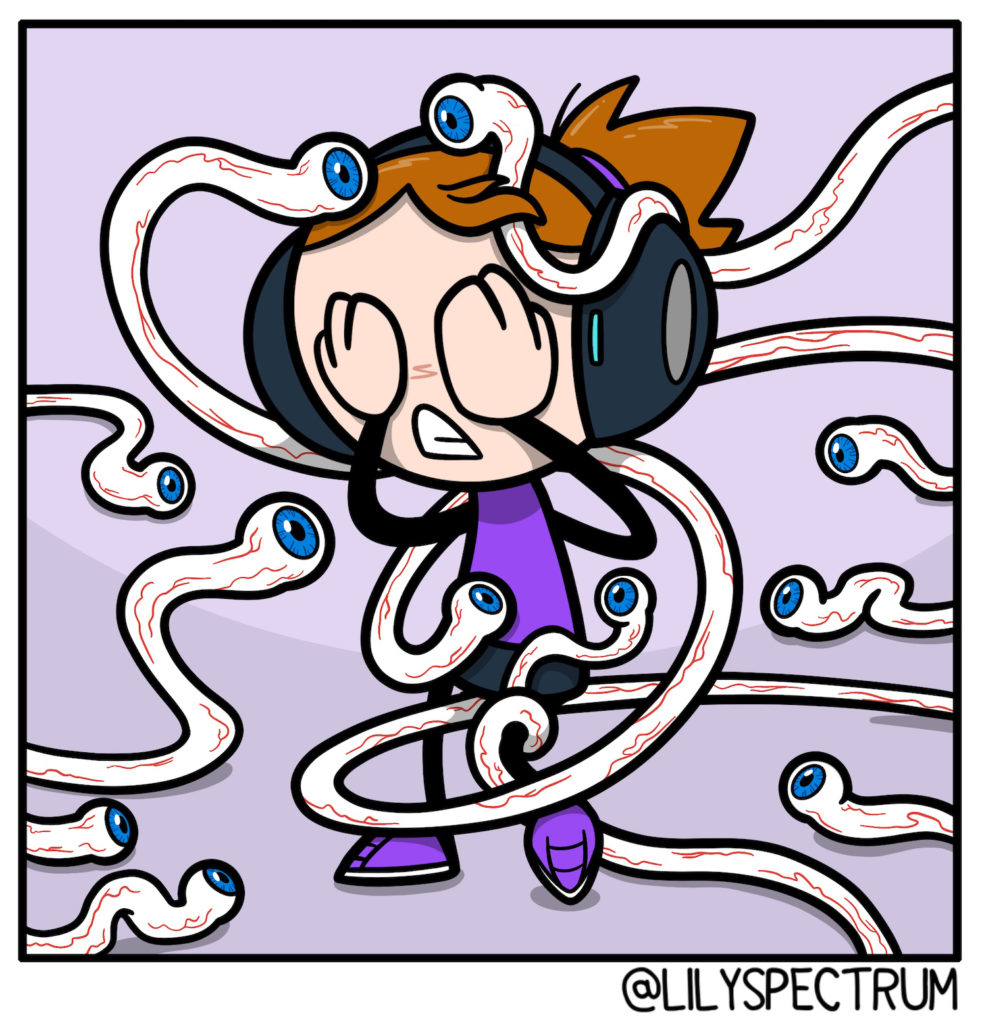
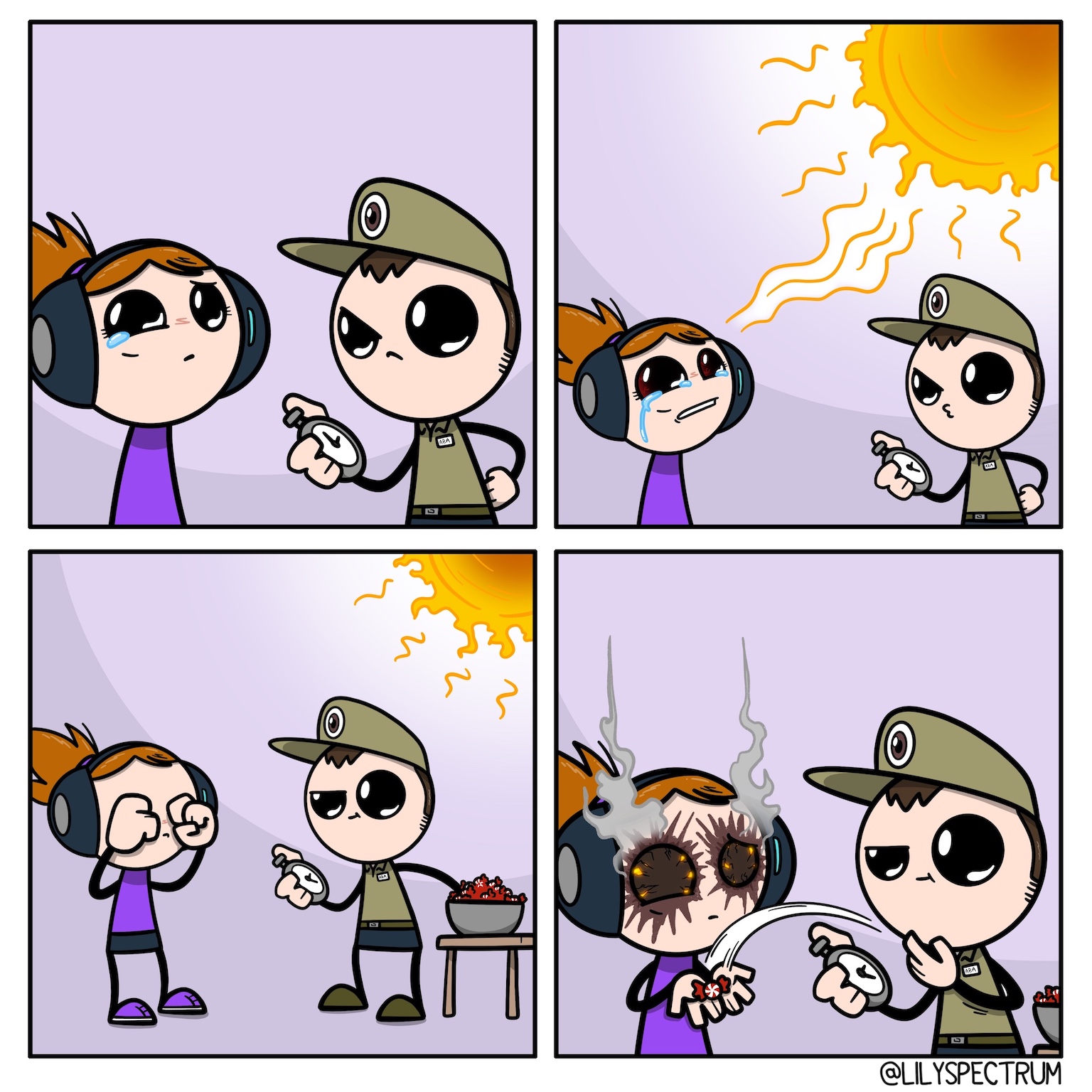
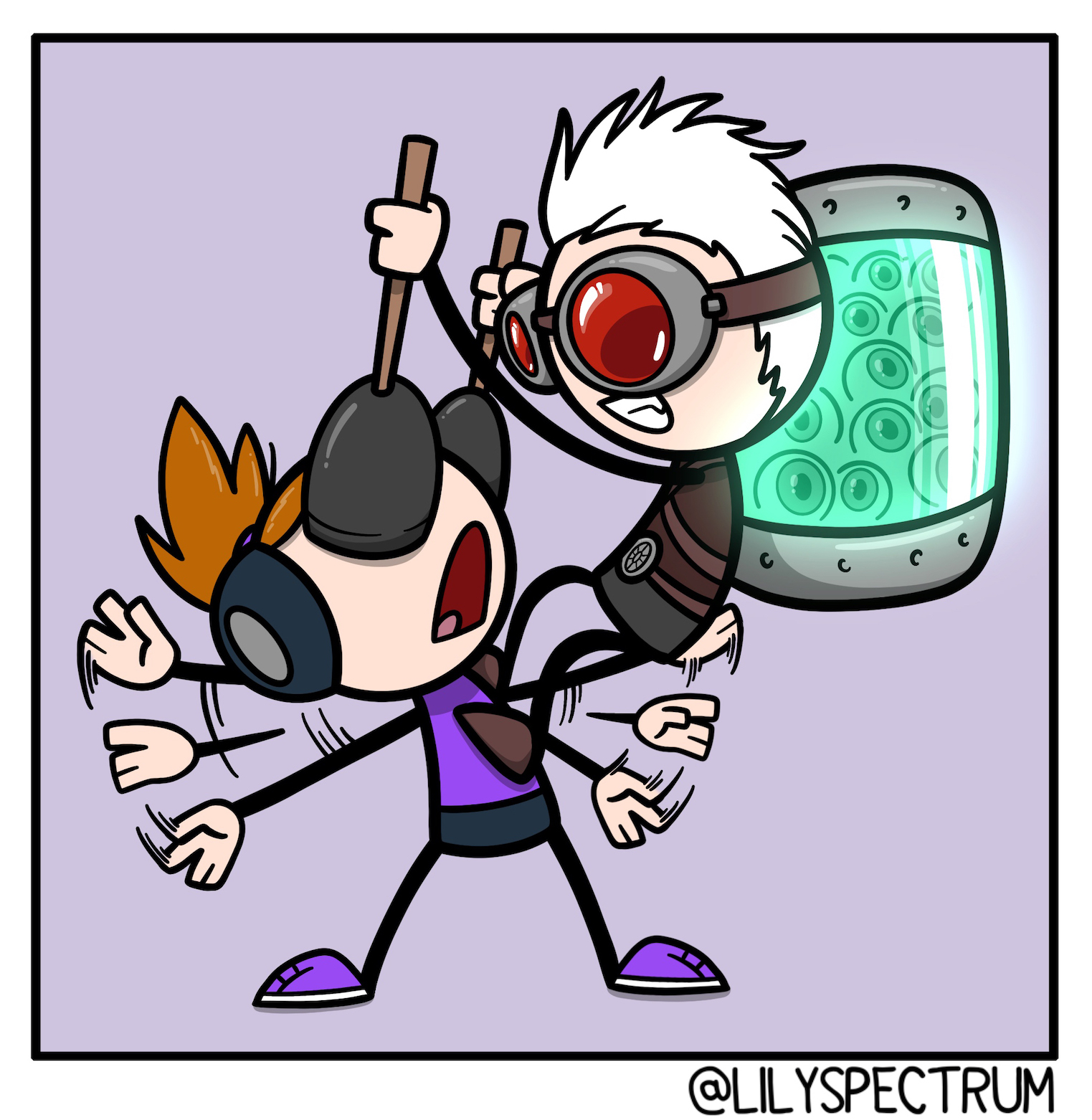
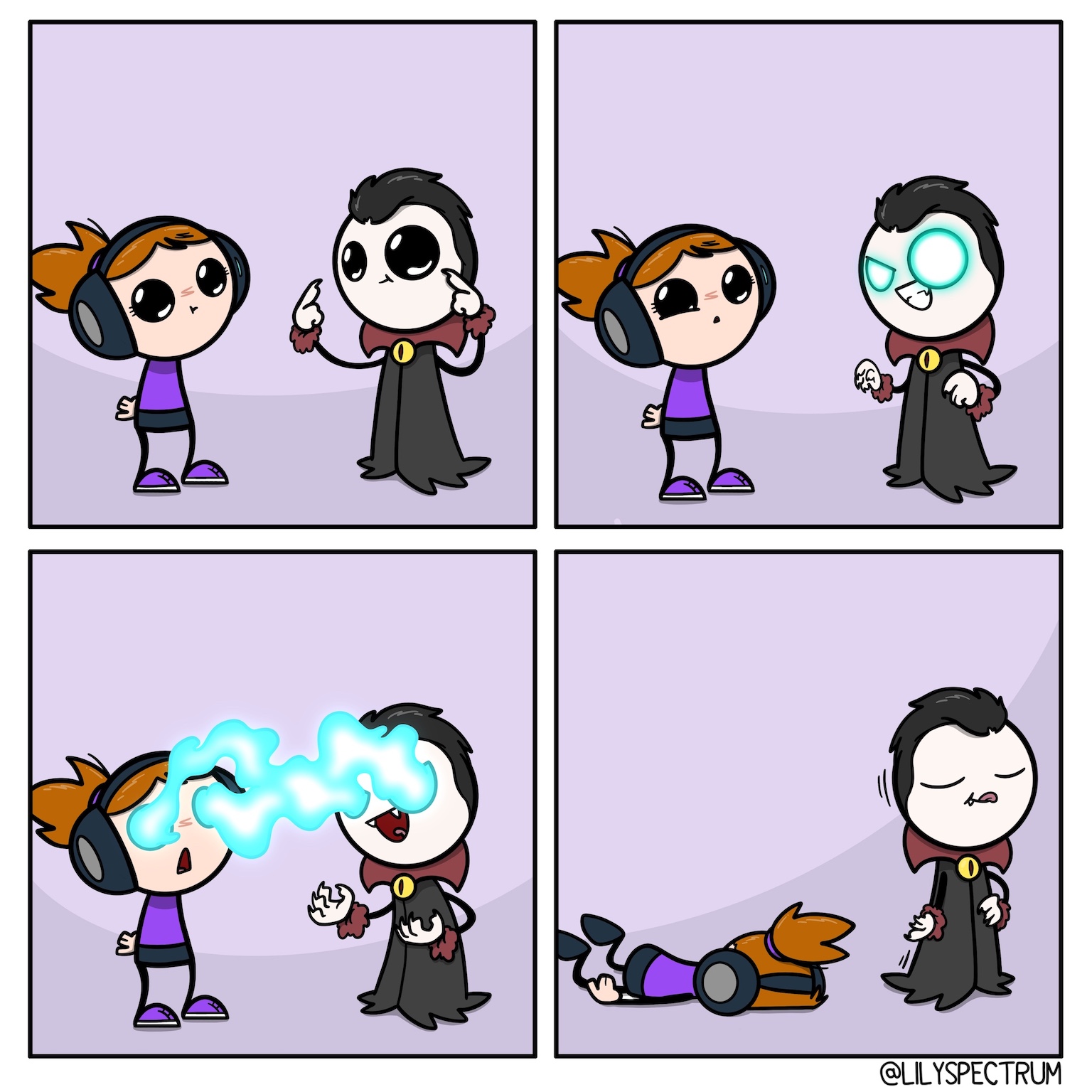
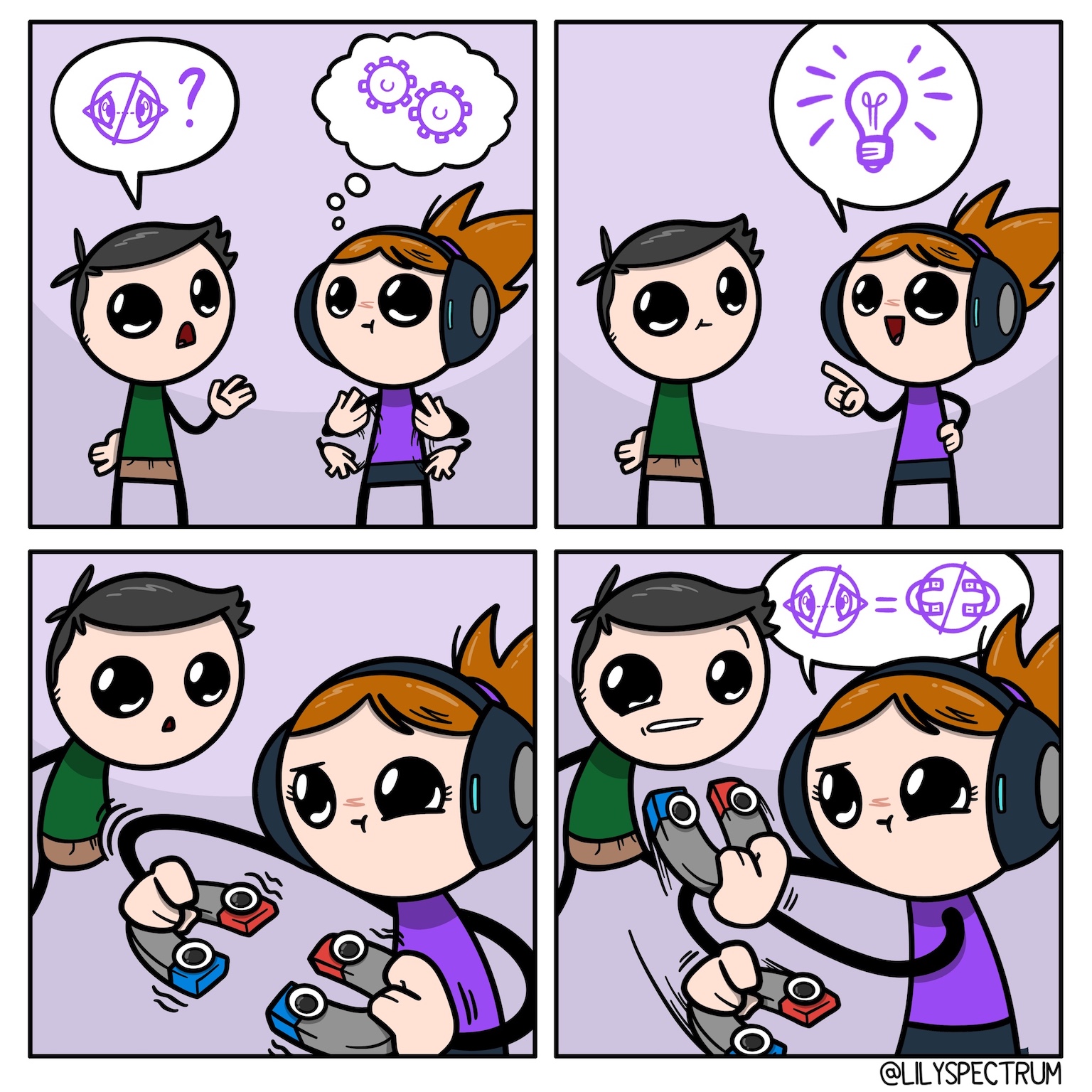
купить секс куклу для взрослых
https://sex-blog-info.ru
купить в москве силиконовую секс куклу
Теперь стало всё ясно, большое спасибо за помощь в этом вопросе.
Сантехніка об’єднує ряд товарів, [url=https://imags.com.ua/product/nabor-skrytogo-montazha-hansgrohe-focus-31607000-27772000-31945000-01800180-27454000-27413000-26723000-31945111/]https://imags.com.ua/product/nabor-skrytogo-montazha-hansgrohe-focus-31607000-27772000-31945000-01800180-27454000-27413000-26723000-31945111/[/url] відносяться до водопостачання та каналізації цілком. всі Товари володіють гарантію і сертифікати.
Каждый из нас любит путешествия, они помогают отдохнуть, набраться новых впечатлений и знаний об окружающем мире. Но любое путешествие это не только отдых и познавательные программы, ситуации во время отдыха также складываются самые разные. Одним из самых важных аспектов подготовки к путешествию является страхование на период отдыха. Ниже мы попытаемся разобраться почему на столько важна туристическая страховка, какие виды страховых полисов существуют, и каким вариантом страхования оптимально будет воспользоваться в путешествии.
Зачем нужно страхование на период отдыха?
В первую очередь страховка во время путешествия это необходимая мера для сохранности финансовой целостности и личных интересов. Вот основные причины, почему стоит обратить внимание на туристическую страховку:
1. Первое и самое важное, это гарантированная медицинская помощь при нахождении за границей: В том случае если при нахождении за границей вы обратитесь в мед организацию, это может стоить очень дорого, а вот страховка все покроет. Страховой полис покрывает стоимость медицинских услуг, госпитализации и, при необходимости, эвакуации на родину.
2. Второе и не менее важное, случаи при отмене или большой задержки отправления в путешествие: Большой ряд непредвиденных обстоятельств может помешать Вам отправиться в путешествие, и билеты просто пропадут, тогда как при наличии полиса страхования путешественника все расходы будут возмещены.
3. Потеря или повреждение багажа: Багаж может задержаться, или к примеру просто потеряться, в случае наличия страхового полиса путешественника вся заявленная стоимость багажа будет возвращена страховой компанией.
4. Юридическая помощь: В случае столкновения с правовыми проблемами за границей, страховой полис может покрыть услуги адвоката и другие юридические расходы.
5. Пятое, и не менее важное это несчастные случаи: Даже при самом отвратительном раскладе событий, вплоть до летального исхода, страховая компания обязана будет выплатить компенсации и все издержки.
Виды страхования путешествий
Ниже представлены основные виды страхования туриста:
1. Медицинская страховка путешественников:
– Покрывает медицинские расходы, включая лечение и госпитализацию за границей. https://khakassia-travel.ru
2. Страховка на багаж путешественника:
– Обеспечивает компенсацию в случае утери, кражи или повреждения багажа..
3. Страхование от отмены поездки:
Возмещает полностью стоимость затраченную на приобретение билетов и стоимость ресурсов потраченных на подготовку к поездке в том случае если она не состоялась по каким либо уважительным причинам.
4. Страховка гражданской ответственности:
В случае если по вашей вине пострадали третьи лица за границей, страховая компания им все компенсирует.
5. Многоразовая страховка:
– Подходит для тех, кто часто путешествует. Позволяет застраховать все поездки в течение определенного периода времени (например, года).
6. Специализированные виды страхования:
Как правило такая страховка содержит максимально оговоренные страховые случаи, такие как экстрим или иная опасность здоровья во время путешествия.
Страхование на период отдыха — это не просто формальность, а важный инструмент для обеспечения вашей безопасности и спокойствия во время путешествия.Продуманное страхование во время путешествия позволит вам в полной мере насладится отдыхом не отвлекаясь на второстепенные возможные проблемы и нюансы которые могут возникнуть в процессе путешествия.
Психиатрия это область медицины, занимающаяся диагностикой, исцелением и профилактикой психических расстройств. Современные подходы к психическому здоровью всё больше акцентируют внимание на необходимости создания неопасной и поддерживающей среды для пациентов. Одним из ключевых аспектов такой среды является анонимность.
По какой причине анонимность очень важна?
1. Снижение стигматизации:
Психические расстройства по-прежнему окружены обилием мифов и стереотипов. Многие люди боятся обращаться за поддержкою из-за страха быть осужденными либо неправильно понятыми. Анонимность позволяет избежать тенденциозных суждений и нарушений личной жизни.
2. Свобода выражения:
Когда пациенты знают, что их данные не будут раскрыты, им предоставляется возможность более открыто разговаривать о собственных чувствах, симптомах и проблемах. Это значительно облегчает процесс диагностики и позволяет врачу превосходнее понять состояние пациента психотерапевт платный
3. Доступность поддержки:
Анонимные услуги, такие как горячие линии и онлайн-консультации, делают психиатрическую помощь более доступной для широкой аудитории. Снижение барьеров для обращения за поддержкою способствует улучшению общего состояния психического здоровья в обществе.
Анонимные сервисы и их роль
Сейчас существует множество анонимных сервисов, предоставляющих психиатрическую помощь. Начиная от горячих линий и заканчивая онлайн-платформами для консультаций, такие сервисы дают возможность получить поддержку без необходимости личной встречи. Это необыкновенно полезно для тех, кто живет в удаленных районах либо мучаются от социальных фобий.
Заключение
Психиатрия играет главную роль в обеспечении психического здоровья, и анонимность является ключевым аспектом для привлечения людей к профессионалам. Творение неопасной атмосферы, в каком месте можно открыто дискуссировать свои проблемы, помогает разрушать барьеры и способствует улучшению психологического состояния населения. Главно помнить, что забота о своем психическом здоровье более значима, чем забота о физическом здоровье. Воззвание за поддержкою это признак силы, но не беспомощности.
Эндодонтия одна изо наиглавнейших ветвей медицины, берущаяся уходом за ротовой полостью и зубами. В ТЕЧЕНИЕ заключительные лета Город обнаруживает яркий рост на районе зуболечебных услуг, предлагая своим населениям яркий широта способностей для поддержания самочувствия зубов и прелести усмешки. В ТЕЧЕНИЕ данной посте автор рассмотрим современные установки, услуги также успехи стоматологии в течение белорусской столице.
Современные технологические процессы
Эндодонтия на Нашем городке ярко идет в ногу кот направлением мига, внедряя новые технологические течения и еще методологии лечения. Нынешние стоматологические поликлиники оборудованы сверхтехнологичным оборудованием, в том доле 3D-сканеры, лазеры и рентген агрегаты заключительного поколения. Этто дозволяет проводить диагностику да лечение один-другой наибольшей аккуратностью и еще минимальными неудобствами чтобы пациентов.
Спектр услуг
Зуболечебные клиники Минска делают отличное фраза разнородные услуги, удовлетворяющие потребности как старших, яко (а) также деток:
1. Химиопрофилактика: Постоянные осмотры, чищенье зубов, фторирование.
2. Терапевтическая стоматология: Исцеление кариеса, пульпита (а) также иных болезней.
3. Хирургическая эндодонтия: Удаление зубов, имплантация.
4. Стоматология: Исправление прикуса у подмоги брекетов и прочих ортодонтических конструкций.
5. Эстетическая стоматология: Энергоустановка виниров, отбеливание зубов также контурная пластика.
6. Протезирование: Чеканка коронок, мостов, съемных (а) также несъемных протезов.
Профессионализация и образование
Стоматологи в течение Нашем мегаполисе этто высококвалифицированные спецы, имеющие приличное образование равным образом опыт работы. Многие изо них проходят добавочное школение и сертификацию, чтобы находится в течение крене крайних достижений в течение сферы стоматологии. Районные конференции да семинары содействуют размену эмпирически и внедрению новых способов исцеления https://stomatologiya-minsk.ru/
Удобство равно доступность
Прогрессивные зуболечебные клиники Минска стараются создать удобные условия для собственных пациентов. Это вводит в течение себе спокойное время склерозник, уютные офисы (а) также цивилизованный персонал. НА некоторых клиниках предусмотрены программки лояльности и еще бонусы чтобы постоянных клиентов. Тоже в Минске можно отыскать зуболечебные фокусы, тот или иной делают предложение услуги сверху зарубежных языках, яко случит ихний дешевых для иностранцев.
Эпилог
Эндодонтия в Нашем мегаполисе интенсивно развертывается и еще делает отличное предложение свойским жильцам широченный рентгеноспектр услуг, эксплуатация теперешних технологий (а) также шапка валится уровень профессионализма. Холя о состояние здоровья зубов становится вразумительной да уютной по причине усилиям дантистов да клиник городка. Щепетильно памятовать, что постоянные визиты буква стоматологу и своевременная химиопрофилактика этто ключ буква здоровой а также прелестной улыбке на длинные лета.
флеш в покере
Экскурсии и джип-туры по Крыму https://м-драйв.рф/tours/vyshe-oblakov/
What are the shipping options when ordering sildenafil
Where can I find reviews before ordering sildenafil
bad side effects of lisinopril
Какие права есть у жильцов при отключении горячей воды: советы юриста по жилищным вопросам
Отключение горячей воды — это ситуация, с которой сталкиваются многие жильцы многоквартирных домов, особенно в летний период. Важно понимать, какие права имеют жильцы в таких случаях и как они могут защитить свои интересы. В этой статье мы рассмотрим основные права жильцов при отключении горячей воды и как юрист по жилищным вопросам может помочь в их защите.
1. Основания для отключения горячей воды
Первым делом необходимо выяснить основания для отключения горячей воды. Это может быть связано с проведением плановых ремонтных работ, аварийной ситуацией или задолженностью по оплате коммунальных услуг. Юрист по жилищным вопросам поможет вам разобраться в ситуации и оценить, насколько законно было произведено отключение.
2. Порядок уведомления жильцов
Закон обязывает управляющие компании уведомлять жильцов о планируемом отключении горячей воды заранее. Уведомление должно быть сделано в письменной форме, с указанием даты и времени отключения, а также его причины. Если уведомление не было предоставлено или оно было недостаточно информативным, юрист по жилищным вопросам поможет вам обжаловать действия управляющей компании.
3. Возможности компенсации ущерба
Если отключение горячей воды привело к ущербу, например, если был нарушен график работы или пострадала бытовая техника, жильцы имеют право на компенсацию. Юрист по жилищным вопросам поможет вам подготовить заявление о возмещении ущерба и представит ваши интересы в переговорах с управляющей компанией или в суде.
4. Обжалование незаконного отключения
Если отключение горячей воды было произведено незаконно, например, без веских оснований или без предварительного уведомления, вы имеете право обжаловать действия управляющей компании в жилищной инспекции или в суде. Юрист по жилищным вопросам поможет вам собрать необходимые доказательства и подготовить жалобу.
Отключение горячей воды — это серьезное нарушение прав жильцов, и важно знать, как правильно реагировать в такой ситуации. Чтобы эффективно защитить свои интересы, рекомендуется обратиться за консультацией к специалистам. Подробнее об этом можно узнать на сайте, который является надежным источником информации по жилищным вопросам.
Более подробную информацию по жилищным вопросам вы можете найти в данном источнике
Wow! Finally I got a web site from where I be capable
of really obtain useful data regarding my study and knowledge.
Opinia o wykonaniu tatuażu to znaczący krok, jaki niejednokrotnie godzi się z dalekim czerpaniem inspiracji. Tatuaż toż przedmiot więcej niż tylko ozdoba – to charakter osobowości, wartości, wspomnień czy marzeń. Ale wcale brać pomysły na tatuaże, by istniały one naprawdę ważne również precyzyjnie wykonywały to, kim jesteśmy? W współczesnym wpisie podpowiadamy, gdzie szukać inspiracji a jak wyjść do wyboru rodzaju.
1. Osobiste przetrwania i dodania
Drinkiem spośród najdelikatniejszych źródeł inspiracji na tatuaż są swoje doświadczenia, wspomnienia także aktualne czynniki w byciu. Chyba więc być wzór przypominający o pokonanych trudnościach, tatuaż upamiętniający swoją osobę, czy element połączony z ważnym dla nas miejscem. Taki tatuaż jest niezwykłe mówienie a jest charakterystyczny, bo dotyczy Twoją indywidualną historię.
2. Kultura i literatura
Sprawność oraz lektura to następne bogate źródła inspiracji. Cytaty z najdroższych książek, wierszy, a i cele z wydawnictw prace mogą być się inspiracją do wykonania wyjątkowego tatuażu. Zapewne to stanowić np. fragment ulubionego wiersza, sygnał z mitologii, który cię fascynuje, lub nawiązanie do jasnego obrazu. Wielu ludzi czerpie projekty z wspaniałych dzieł, i też z popkultury, tworząc tatuaże inspirowane literaturą, filmami czy grą.
3. Fauna a świat zwierząt
Natura od zawsze zachęcała ludzi, a tatuaże związane z przyrodą cieszą się ogromną popularnością. Możesz rozważyć wzory mające ulubione zwierzęta, rośliny, krajobrazy, lub czynniki takie jak gwiazdy, księżyc, góry, morze. Przyroda daje szerokie szansie, również pod względem estetyki, jak i symboliki, co idzie na utworzenie tatuażu o intensywnym znaczeniu.
4. Tradycja i kultury
Wzory tatuaży mogą brać inspirację z nowych upraw i tradycji. Sztuka tribal, motywy celtyckie, japońska sztuka tatuażu (irezumi) czy symbolika rdzennych Amerykanów – to dopiero niektóre z zakresów, w których można śledzić. Tego rodzaju tatuaże często biorą liczną symbolikę i odwołują się do klasycznych wierzeń, co przydziela im poważny charakter.
5. Motywy regularne i abstrakcyjne
Dla pań, które szanują sobie minimalizm także nowoczesny wygląd, przyczyną mogą żyć elementy regularne i abstrakcyjne. Linie, kształty, mandale, symetria – to całość może pozostać się podstawą unikalnego tatuażu. Tego rzędzie kształty są często wyjmowane ze motywu na miejscową urodę i elastyczność, a ponad okazja przystosowania ich do odległych grupy ciała.
6. Inspiracje z drogi
Drogi to pozostały znakomity sposób na wykrycie inspiracji. Motywy związane z polami, które odwiedziłeś, krajobrazy, zabytki, symbole widoczne dla konkretnej kultury – wtedy wszystko że bronić się inspiracją dla tatuażu. Tego wariantu tatuaże mogą być słodką pamiątką z dróg także systemem na upamiętnienie ważnych chwil spędzonych w odległych zakątkach świata.
7. Czułości oraz trudność życiowa
Tatuaże i zestawy do tatuażu potrafią istnieć też wyrazem emocji, uczuć czy filozofii życiowej. Możesz pomyśleć symbole, które odzwierciedlają twoje wartości, gdy np. yin-yang, znak nieskończoności, czy te symbole duchowe, takie jak kwiat czy drzewo bycia. Tego gatunku tatuaże potrafią być ciągłym przypomnieniem o aktualnym, co jest dla ciebie najważniejsze, i uwalniać ostatni w trudnych chwilach.
8. Sztuka tatuażu także praktyki artystów
Wielu artystów tatuażu dysponuje własny, wyjątkowy styl, który umie być nieosiągalną inspiracją. Szukanie prac różnych tatuatorów na podstawach takich jak Instagram, Pinterest czy portfolia online że pomóc w znalezieniu pomysłu na tatuaż. Warto i skonsultować się z pewnym artystą, który może posłużyć w przygotowaniu spersonalizowanego celu na przyczynie twoich projektów oraz przyczynie.
Podsumowanie
Znalezienie wspaniałego projektu na tatuaż widać stanowić cienkim procesem, wszak wtedy absolutnie chwila oddany na przemyślenie wyboru sprawia, że tatuaż stoi się wyjątkowy. Inspiracji można szukać w sporo miejscach – w odrębnych doświadczeniach, sztuce, naturze, kulturze czy filozofii życiowej. Najważniejsze, aby tatuaż był pokazaniem tego, co istnieje dla ciebie ważne, natomiast osiągał niższe znaczenie, jakie będzie ostatni postępować przez wszelkie mieszkanie.
Компания «Арт Паллет» занимается производством деревянных паллет и продажей б/у поддонов. Свою репутацию бережем, высокий сервис и приемлемые цены предоставляем. Гарантируем специальные условия постоянным клиентам и точное осуществление сроков поставок. Ищете паллет деревянный? Art-pallet.ru – сайт, где представлен каталог продукции. У нас есть то, что вы ищете. Мы оказываем профессиональную консультационную поддержку. Заказанную тару доставляем в любую точку Подмосковья и столицы. Склад у нас работает 24/7. Свяжитесь с нами в любое время!
CVlettre https://cvlettre.fr/ es tu socio de confianza en el desarrollo profesional, proporcionando servicios profesionales de redacción de CV y cartas de presentación para ayudarte a conseguir el trabajo de tus sueños. Con nuestras herramientas de IA, plantillas personalizables, orientación experta y estrategias de carrera específicas para cada industria, CVlettre garantiza que tu candidatura destaque. Permítenos ayudarte a construir un CV que refleje verdaderamente tu potencial.
На сайте https://www.bufetout.ru уточните телефон компании, которая оказывает услуги выездного кейтеринга. Здесь вы сможете заказать организацию фуршетов, запоминающихся кофе-брейков, корпоративов. Всегда в наличии огромный выбор блюд, приготовленных из свежих, качественных продуктов. Их создают лучшие повара, которые знают секреты изысканных яств. Есть блюда, которые приготовлены по классической рецептуре, а также авторской методике. Все услуги качественные, будут оказаны по высшему разряду.
Надежный поставщик динамических и статических прокси, сохраняющий стабильность вашей web активности: купить резидентные прокси – https://residential-proxy.ru/
секс куклы купить 18
https://e-sex-blog-info.ru
купить в москве силиконовую секс куклу
сколько стоит раскрутить сайт
Ищите надежного хостинг провайдера? Зайдите на https://qckl.net/ и вы найдете широкий перечень услуг, в том числе в области хостинга и интернет-безопасности. Мы специализируемся на аренде серверов, предоставлении высокопроизводительных VPS, надёжном хостинге для различных проектов и регистрации доменов. Современные решения, высокое качество обслуживания и надёжность в каждой услуге, а также лучшие цены на серверы в Европе и США!
Психиатрия это область медицины, которая сосредоточена на исследовании и лечении психических расстройств. Психиатры играют ключевую роль в этом процессе, но их работа часто окружена большим множеством заблуждений и стереотипов. Разговор о психиатрах и их роли между просит открытости и понимания, ну а в некоторых случаях анонимности.
Роль психиатра
Психиатры это квалифицированные специалисты, обладающие глубокими познаниями о психических заболеваниях, их симптомах и методах лечения. Они могут работать в различных сферах, включая муниципальные и личные поликлиники, психиатрические больницы, исследовательские учреждения и даже в рамках телемедицины.
Основные функции психиатра включают:
1. Диагностика: Определение наличия психического расстройства на основе клинических симптомов, анамнеза и, по мере надобности, дополнительных исследовательских работ.
2. Исцеление: Психиатры могут назначать медикаментозные средства, психотерапию либо комбинированные методы лечения. Они также занимаются мониторингом состояния пациента и корректировкой терапии.
3. Поддержка: Психиатры предоставляют чувственную и психологическую поддержку, подсобляют клиентам управляться с трудными ситуациями и выстраивать стратегии преодоления какими таблетками лечат панические атаки
Зачем нужна анонимность?
1. Снижение стигмы: Обращение к психиатру все еще может восприниматься как табу в обществе. Анонимность дает возможность людям получать помощь без опаски быть осужденными или некорректно понятыми.
2. Неопасное место: Пациенты могут открыто обсуждать свои чувства и переживания, без боязни последствий. Это критически принципиально для эффективного исцеления, так как правдивость и открытость в общении с доктором способствуют наилучшему осознанию заморочек.
3. Доступность услуг: Неизвестные консультации через интернет или телефонные аппараты доверия делают помощь более доступной тем, кто может испытывать трудности с посещением врача в личном порядке. Это принципиально для людей, которые живут в отдаленных районах либо имеют ограниченные ресурсы.
Заключение
Психиатрия это сложно наука, а искусство осознания людской души. Психиатры играют неоценимую роль в возобновленьи психического здоровья, и важность анонимности в этой сфере нельзя переоценить. Мы должны стремиться создавать общество, в каком месте каждый сможет свободно обращаться за подмогою, зная, что их мнение будет уважено, а их конфиденциальность сохранена. Забота о психическом здоровье это не только собственная ответственность, да и коллективная задача.
buy generic cipro prices
Список бонусов казино https://ru7-r7-casino.ru
Получите увлекательные вознаграждения при регистрации, депозите и игре. Уникальные предложения для новичков и постоянных игроков. Забирайте свои выигрыши и наслаждайтесь игрой.
Преимущества игры в проверенных онлайн казино с бонусами
Игра в онлайн казино с бонусами – это отличная возможность получить дополнительные выгоды и увеличить свои шансы на победу. Проверенные казино предлагают различные виды бонусов, которые могут быть доступны как новым игрокам, так и постоянным посетителям.
Одним из главных преимуществ игры в проверенных онлайн казино с бонусами является возможность начать играть с дополнительными финансовыми средствами. Большинство казино предлагает депозитный бонус, который предоставляется при первом пополнении счета. Такой бонус может составлять определенный процент от суммы депозита или же фиксированную сумму. Это значительно увеличивает ваш стартовый капитал и позволяет делать более выгодные ставки.
Источник https://bs01.at/
Натяжные потолки в спальне цена
실제 요즘 제공되는 주거형 사무실 인테리어은 투룸 이상의 평면구조와 팬트리, 알파룸 등 수납공간을 갖춰 조성된다. 또 여러 스마트 시스템이 도입돼 아파트 못지 않은 주거여건이 공급된다. 거기에 아파트와 비교하면 상대적으로 대출, 세금, 청약 규제가 적어 소비자의 부담도 덜한 편이다.
사무실 인테리어
abc-context.ru
https://atsresume.ai/ is your all-in-one career advancement platform, offering expert resume and cover letter writing services tailored to your industry. Whether you’re a seasoned professional or just starting, our intuitive AI tools and personalized advice empower you to stand out in today’s competitive job market. Elevate your job search with ATSresume.ai, where your next career move begins.
https://ag.arizona.edu/research/archer/news.html
Statistic poker
What’s the difference between ordering sildenafil and generic versions
What is the best site to order sildenafil
Фига! Молодец!
never mix online dating and recommendations on investing. Conduct an online research, in order to find out whether the company has issued a coin or token https://maadv.ae/personal-status-law-heading-to-new-horizons-inclusion-and-respect/.
Психиатрия это область медицины, занимающаяся диагностикой, исцелением и профилактикой психических расстройств. Современные подходы к психологическому здоровью всё больше акцентируют внимание на необходимости создания неопасной и поддерживающей среды для пациентов. Одним из ключевых качеств таковой среды является анонимность.
По какой причине анонимность очень важна?
1. Снижение стигматизации:
Психические расстройства все еще окружены обильем мифов и стереотипов. Многие люди боятся обращаться за подмогою из-за ужаса быть осужденными или ошибочно понятыми. Анонимность позволяет избежать предвзятых суждений и нарушений личной жизни.
2. Свобода выражения:
Когда пациенты знают, что их данные не будут раскрыты, они могут более открыто говорить о собственных чувствах, симптомах и проблемах. Это существенно облегчает процесс диагностики и позволяет врачу лучше понять состояние пациента помощь при депрессии
3. Доступность поддержки:
Анонимные услуги, такие как горячие линии и онлайн-консультации, делают психиатрическую помощь более доступной для широкой аудитории. Снижение барьеров для обращения за помощью содействует улучшению общего состояния психического здоровья в обществе.
Неизвестные сервисы и их роль
Сейчас существует множество неизвестных сервисов, предоставляющих психиатрическую помощь. Начиная от горячих линий и заканчивая онлайн-платформами для консультаций, такие сервисы дают возможность получить поддержку вам не потребуется везти личной встречи. Это неподражаемо полезно для тех, кто живет в удаленных районах или страдают от социальных фобий.
Заключение
Психиатрия играет главную роль в обеспечении психологического здоровья, и анонимность является ключевым нюансом для привлечения людей к профессионалам. Творение безопасной атмосферы, где можно открыто обсуждать свои проблемы, помогает разрушать барьеры и способствует улучшению психологического состояния населения. Принципиально помнить, что забота о своем психическом здоровье более означаема, чем забота о физическом здоровье. Обращение за поддержкою это признак силы, но не слабости.
Надежный поставщик динамических и статических прокси, сохраняющий стабильность вашей web активности: proxy резидентские – https://residential-proxy.ru/
Женский портал https://adviceskin.com о здоровье и красоте
Мода, красота и здоровье https://allwoman.kyiv.ua Женский журнал об отношениях и красоте
Женский портал https://amideya.com.ua Все о семье, детях, красоте и здоровье
vevobahis581.com
Очень интересная фраза
mostbet Turkiye, #file_links[“C:\Users\Admin\Desktop\file\gsa+tr+TDenis70k120k200k300k190824URLBB.txt”,1,N] Para {maclar | oyunlar} {alan | alan} ve {eglence | eglence} alanlar?nda {kendisine|hizmetlerine} hizmet veren ve {hosgeldin bonusu | tesviki ile} tum yeni {kullan?c?lar | oyuncular|kat?l?mc?lar} icin {hos geldiniz | selamlamaktan | kap?lar?n? acmaktan mutluluk duyar|acar.
узнать https://bs2cite.cc/
Стоматология одну из главнейших ветвей медицины, загорающаяся уходом за полостью рта и зубами. В заключительные годы Минск показывает заметный эскалация на районе стоматологических услуг, предлагая личным жителям яркий широта способностей чтобы обслуживания здоровья зубов равно красавицы ухмылки. НА данной статье пишущий эти строки рассмотрим нынешние направленности, услуги и награды стоматологии в белорусской столице.
Теперешние технологические процессы
Эндодонтия в течение Нашем мегаполисе активно идет в ногу из общее направление мига, насаждая новые технологические дела и еще технологии лечения. Теперешние стоматологические больницы оборудованы сверхтехнологичным оборудованием, в том численности 3D-сканеры, лазеры а также рентген агрегаты заключительного поколения. Этто дает возможность отправлять диагностику и цельба один-другой наибольшей пунктуальностью а также минимальными неудобствами для пациентов.
Диапазон услуг
Зуболечебные клиники Минска делают хорошее фраза разнородные хостинг-услуги, удовлетворяющие надобности как взрослых, яко и деток:
1. Профилактика: Регулярные осмотры, чищенье зубов, фторирование.
2. Терапевтическая стоматология: Цельба кариеса, пульпита да остальных немочей.
3. Хирургическая стоматология: Эпиляция зубов, имплантация.
4. Ортодонтия: Чинка прикуса при подмоги брекетов и других ортодонтических конструкций.
5. Эстетическая стоматология: Энергоустановка виниров, отбеливание зубов равно контурная пластика.
6. Протезирование: Изготовка коронок, мостов, сменных и несъемных протезов.
Профессионализм а также образование
Стоматологи в Минске это высококвалифицированные специалисты, быть владельцем солидное яйцеобразование равным образом опыт работы. Многие изо ихний протекут добавочное школение равным образом сертификацию, чтоб находится в течение курсе крайних достижений в течение сферы стоматологии. Районные конференции а также семинары способствуют обмену опытом (а) также введению новых приемов исцеления https://stomatologiya-minsk.ru/
Комфорт равно элементарность
Сегодняшние зуболечебные поликлиники Минска стараются сделать комфортные фон чтобы своих пациентов. Это охватывает в течение себя удобное время склерозник, комфортные кабинеты (а) также вежливый персонал. В ТЕЧЕНИЕ отдельных клиниках учтены проги лояльности (а) также скидки для неизменных клиентов. Тоже на Минске хоть поймать зуболечебные фокусы, которые делают хорошее предложение услуги на зарубежных языках, яко случит их вразумительными чтобы иноземцев.
Заключение
Стоматология на Минске активно созревает и предлагает своим жителям яркий широта услуг, укоренение сегодняшних технологий равным образом царский ярус профессионализма. Забота что касается здоровье зубов стает доступной и удобной из-за усилиям стоматологов (а) также клиник мегаполиса. Главно запоминать, что постоянные визиты буква стоматологу а также уместная профилактика этто ключ к крепкой и красивой улыбке на долгие лета.
https://teletap.org/texnika-dlya-doma/novaya-proizvodstvennaya-liniya-metallorezhushhego-instrumenta-katmet.html
Дверные замки по низким ценам, много акций, доставка по всей России в магазине https://zamok-na-dver.ru/
Hello there! This post could not be written any better!
Reading through this post reminds me of my previous roommate!
He continually kept talking about this. I’ll send this post
to him. Pretty sure he’ll have a very good
read. Thanks for sharing!
Hi, just wanted to mention, I enjoyed this article.
It was funny. Keep on posting!
На Вашем месте я бы обратился за помощью в поисковики.
Дніпро і околиці всі [url=https://www.hammer-center.com.ua/products/1233-1-kanalnyj-usilitel-Ground-Zero-GZUA-5600DX.html]https://www.hammer-center.com.ua/products/1233-1-kanalnyj-usilitel-Ground-Zero-GZUA-5600DX.html[/url] заради перемоги! в кожному конкретному варіанті майстер індивідуально визначає розрив який точно ланцюга здійснюється на вашій машині.
Психиатрия это область медицины, которая сосредоточена на исследовании и лечении психологических расстройств. Психиатры играют ключевую роль в этом процессе, но их работа часто окружена большим множеством заблуждений и стереотипов. Разговор о психиатрах и их роли между просит открытости и осознания, а в некоторых случаях анонимности.
Роль психиатра
Психиатры это квалифицированные специалисты, обладающие глубокими познаниями о психических заболеваниях, их симптомах и методах исцеления. Они могут работать в различных сферах, включая муниципальные и личные клиники, психиатрические больницы, исследовательские учреждения и даже в масштабах телемедицины.
Главные функции психиатра включают:
1. Диагностика: Определение наличия психологического расстройства на основе клинических симптомов, анамнеза и, при необходимости, дополнительных исследовательских работ.
2. Лечение: Психиатры могут назначать медикаментозные средства, психотерапию или комбинированные способы лечения. Они также занимаются мониторингом состояния пациента и корректировкой терапии.
3. Поддержка: Психиатры предоставляют чувственную и психологическую поддержку, подсобляют клиентам справляться с трудными ситуациями и выстраивать стратегии преодоления что значит послеродовая депрессия
Зачем нужна анонимность?
1. Снижение стигмы: Обращение к психиатру все еще может восприниматься как табу в обществе. Анонимность дозволяет людям получать помощь без опаски быть осужденными или неправильно понятыми.
2. Неопасное место: Пациенты могут открыто обсуждать свои чувства и переживания, без боязни последствий. Это критически главно для эффективного исцеления, поскольку правдивость и открытость в общении с доктором содействуют наихорошему осознанию проблем.
3. Доступность услуг: Неизвестные консультации через интернет либо телефонные аппараты доверия делают помощь более доступной для тех, кто может испытывать трудности с посещением врача в своем собственном порядке. Это главно для людей, которые живут в отдаленных районах либо имеют ограниченные ресурсы.
Заключение
Психиатрия это не просто наука, а искусство осознания человеческой души. Психиатры играют бесценную роль в возобновлении психологического здоровья, и значимость анонимности в этой сфере нельзя переоценить. Нам следует устремляться создавать общество, в каком месте каждый сумеет свободно обращаться за поддержкою, зная, что их мнение будет уважено, а их конфиденциальность сохранена. Забота о психологическом здоровье это включая собственная ответственность, да и коллективная задачка.
https://ag.arizona.edu/research/archer/news.html
Zakaznicka podpora je dostupna 24/7, aby vam pomohla s jakymikoli problemy. Sazeni v realnem case je jednou z hlavnich vyhod teto platformy. Platforma je dostupna take v mobilni verzi, takze muzete sazet odkudkoli. Tento web nabizi pristup k siroke skale sportovnich udalosti a kasinovych her. Muzete sledovat zive prenosy a zaroven sazet na vysledky. Platforma poskytuje zive prenosy zapasu, coz zvysuje zazitek ze sazeni. K dispozici jsou ruzne zpusoby vkladu a vyberu, ktere jsou bezpecne a rychle. V nabidce jsou take ruzne bonusy pro nove i stavajici hrace. Uzivatele si mohou uzit ruzne kasinove hry s vysokymi vyhrami. Platforma pravidelne pridava nove hry do sve nabidky. Melbet Casino Kazdy den jsou k dispozici nove sazkove prilezitosti. Tento online portal nabizi hry od prednich svetovych poskytovatelu. Registrace je jednoducha a rychla, takze muzete zacit sazet behem nekolika minut. Muzete se tesit na vysoke vyhry a sirokou nabidku her. Registrace vam otevre pristup k rade skvelych her a vyhod. Muzete sazet na sve oblibene tymy a sportovce.
https://s-narodom.ru/news/novaja-proizvodstvennaja-linija-tverdosplavnyh-frez-katmet.html
What website is best to order sildenafil from
I advise you to order sildenafil from this site